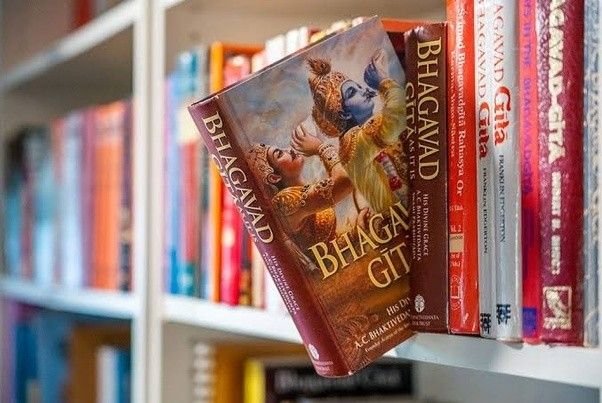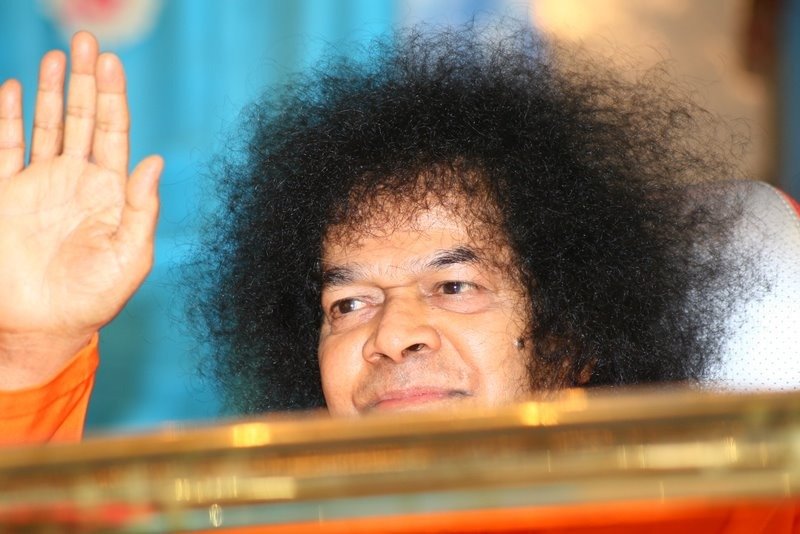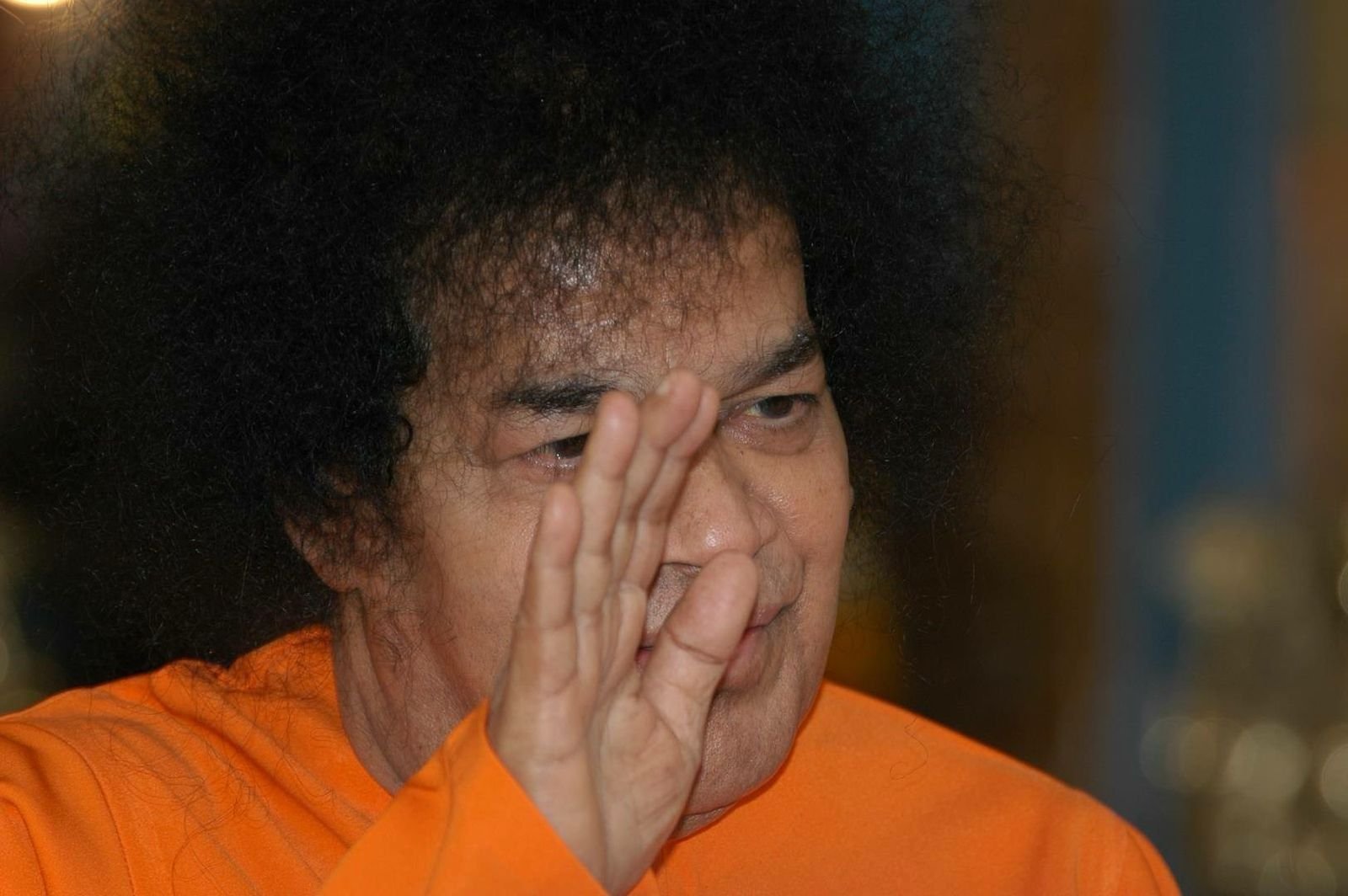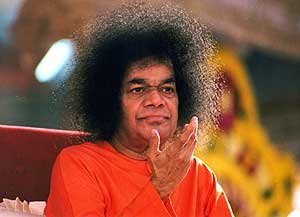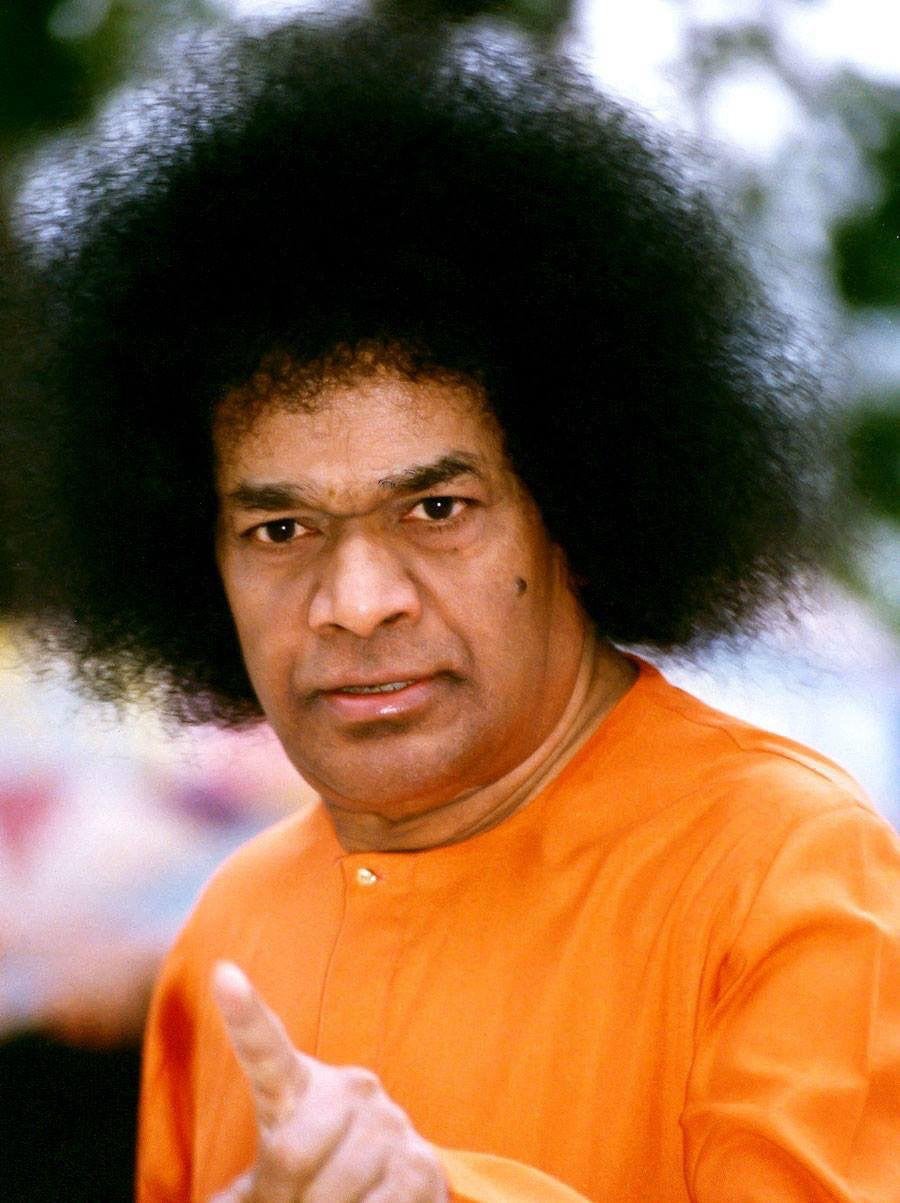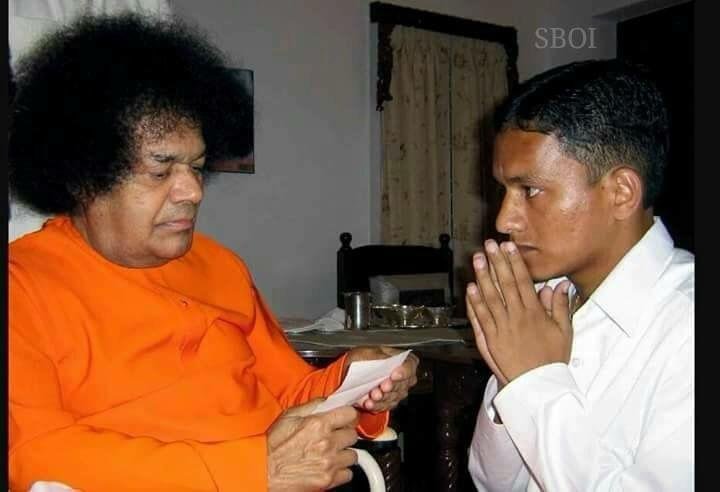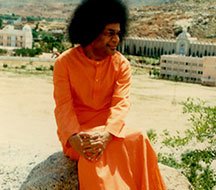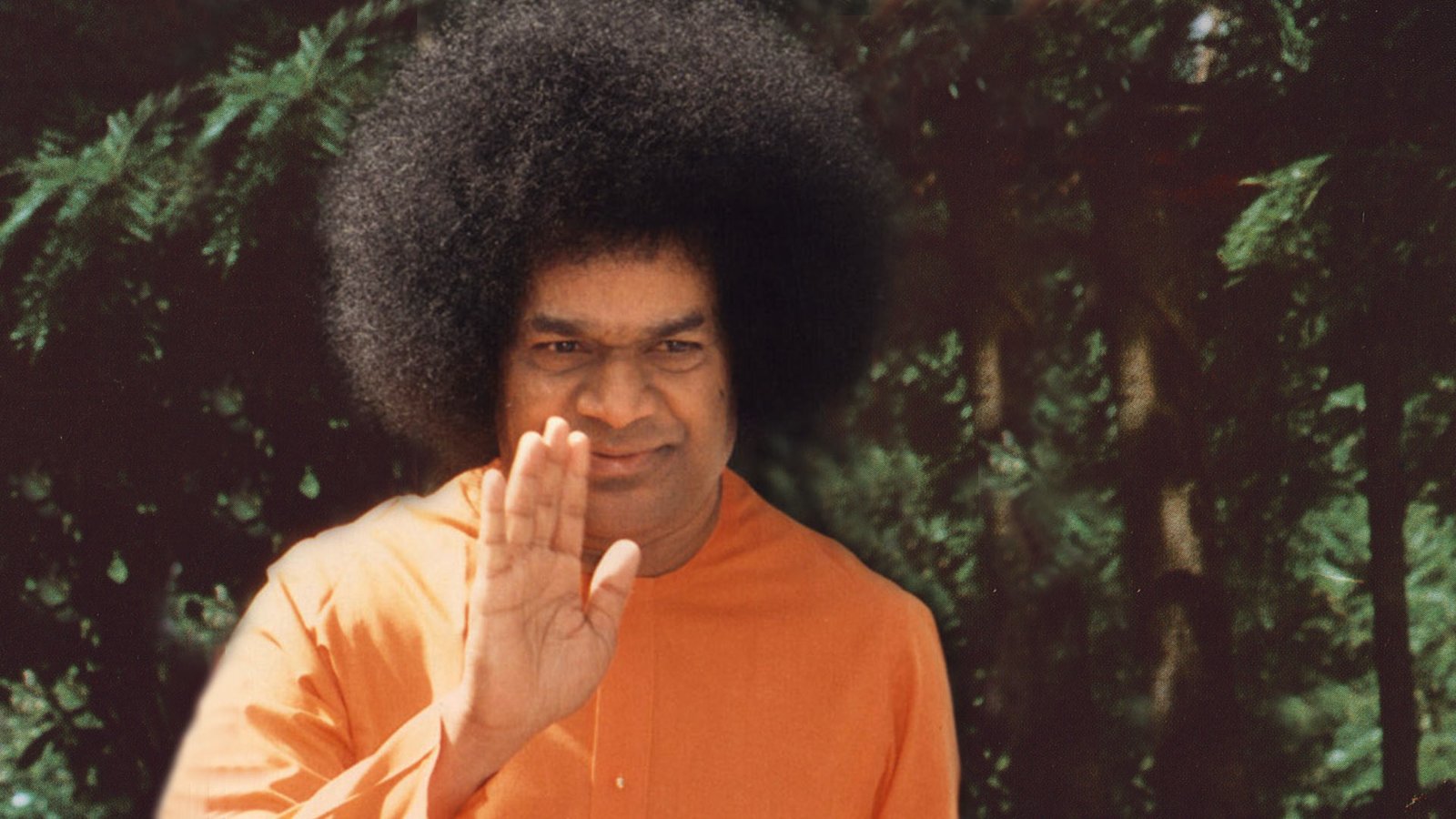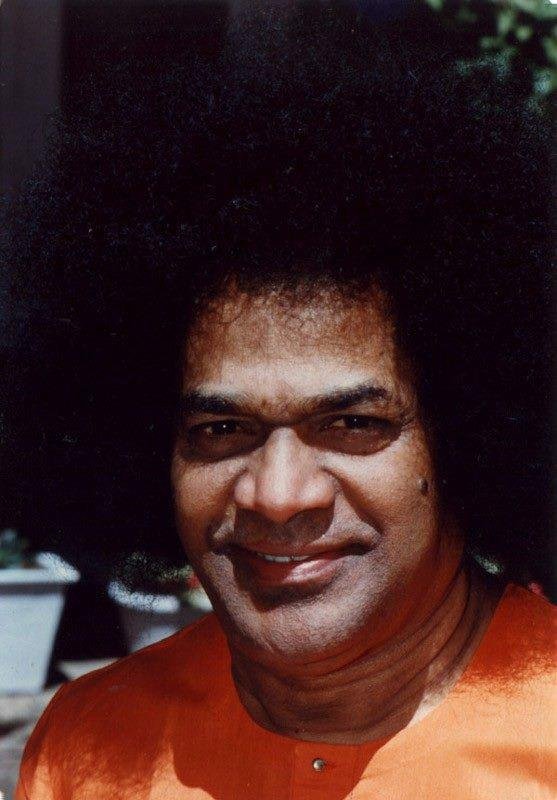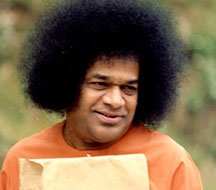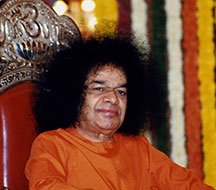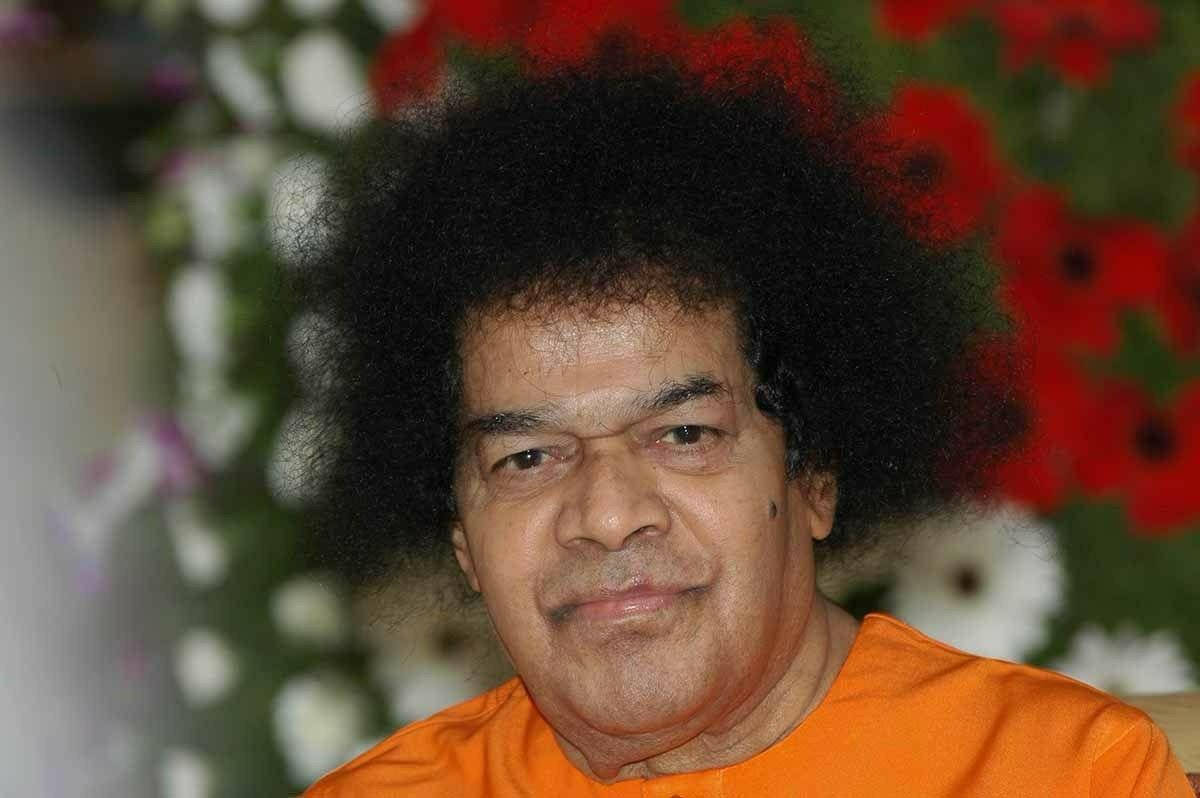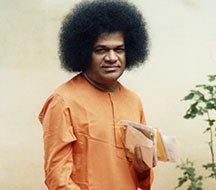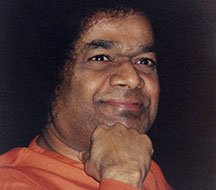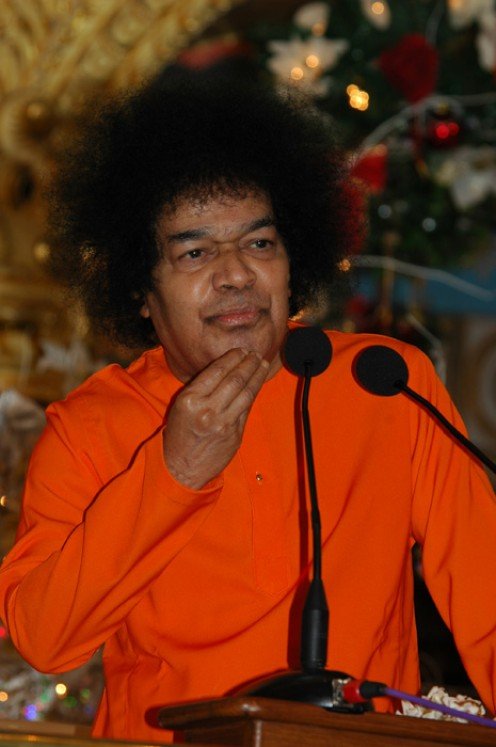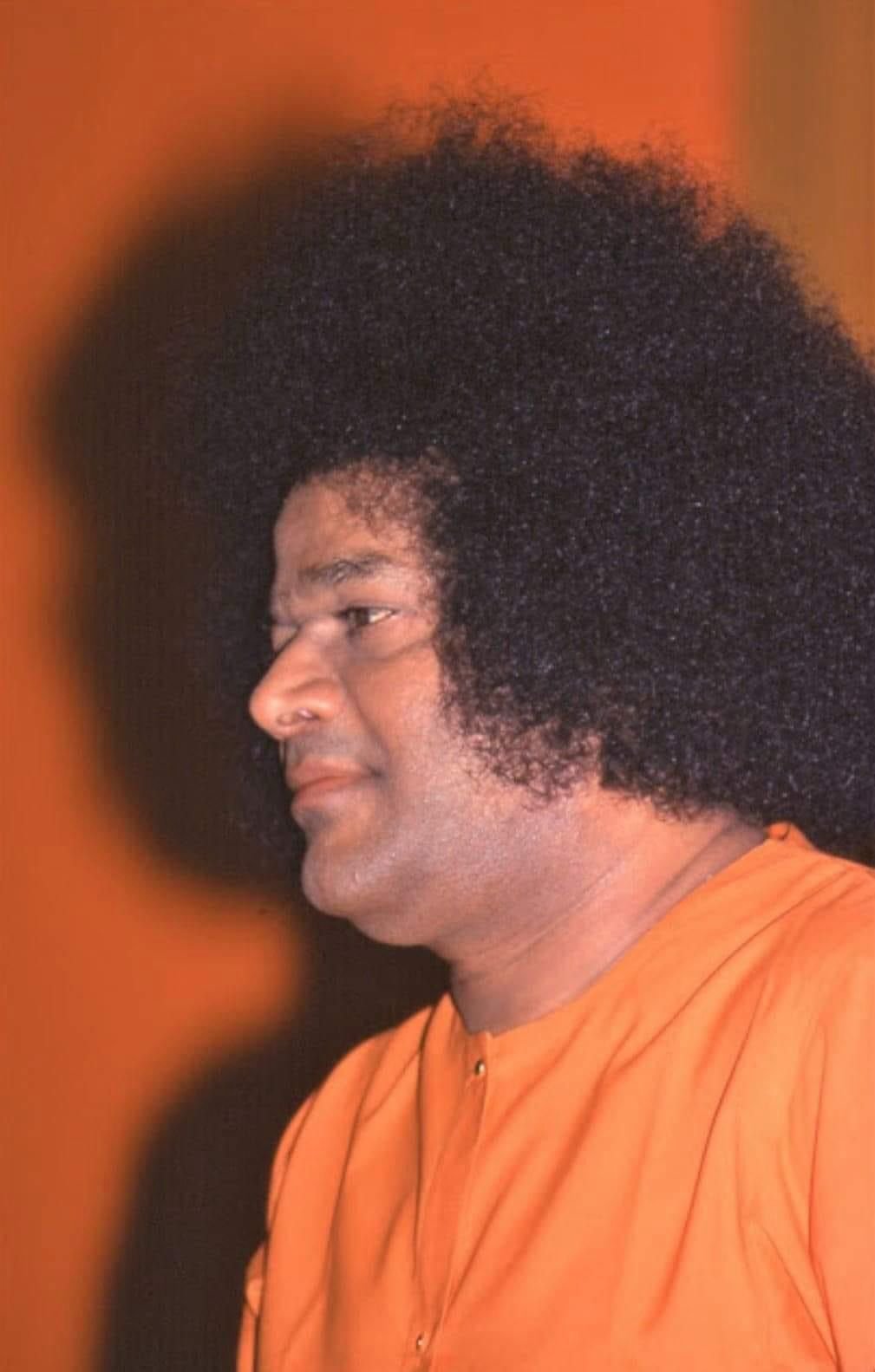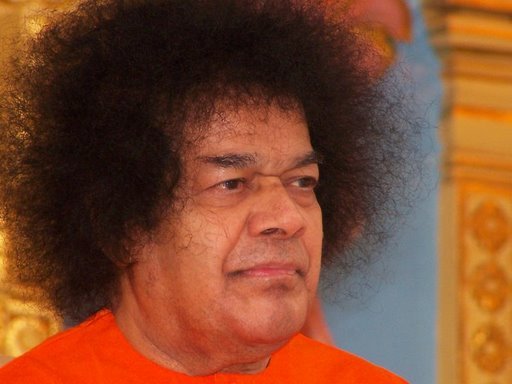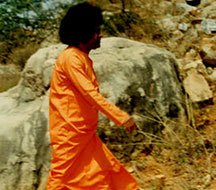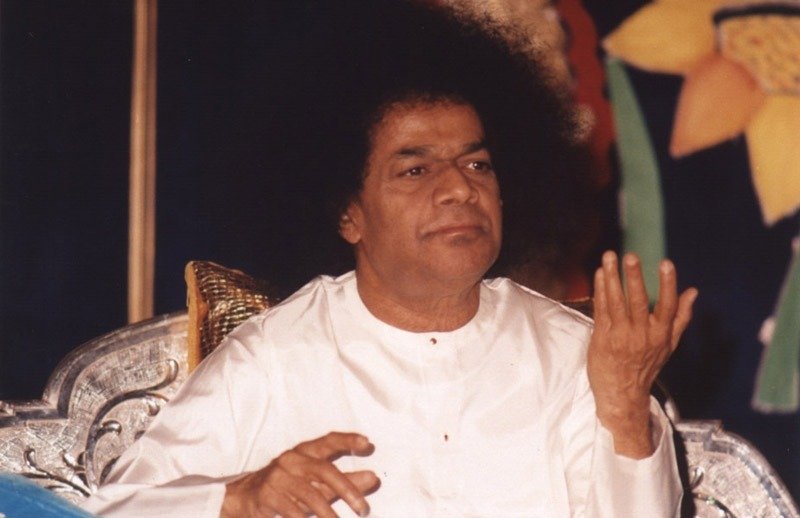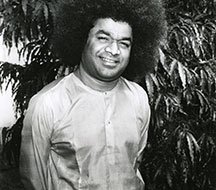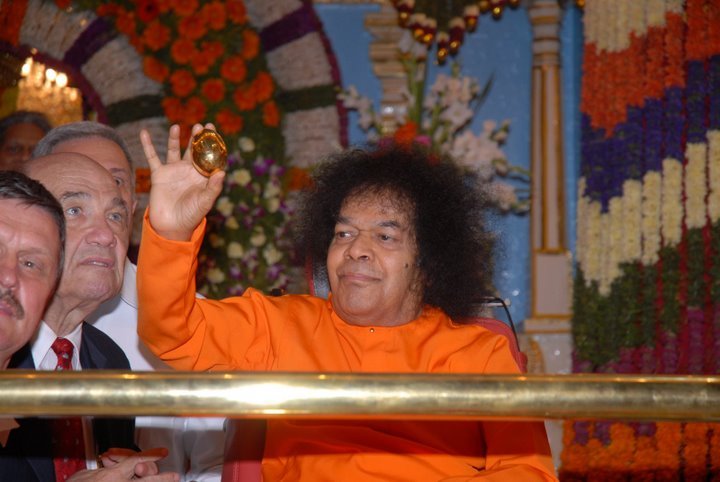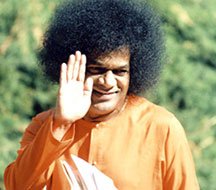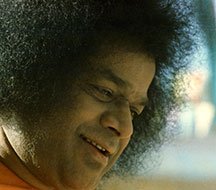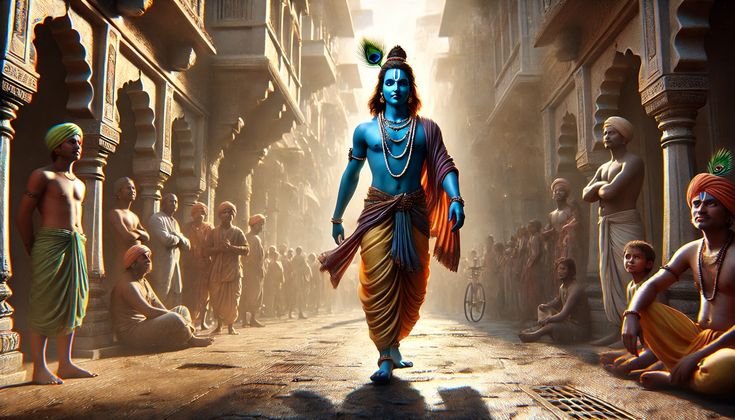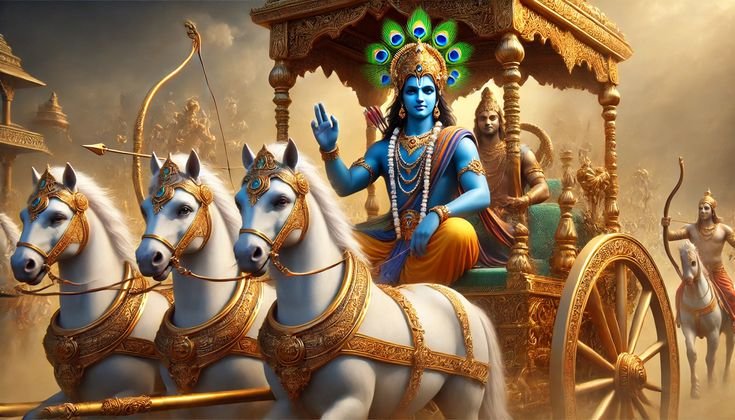Chapter 10
Vibhooti Yoga
The tenth chapter of the Bhagavad Gita is “Vibhooti Yoga”. In this chapter, Krishna reveals Himself as the cause of all causes. He describes His various manifestations and opulences in order to increase Arjuna’s Bhakti. Arjuna is fully convinced of Lord’s paramount position and proclaims him to be the Supreme Personality. He prays to Krishna to describe more of His divine glories which are like nectar to hea
Bhagavad Gita 10.1
श्री भगवानुवाच भूय एव महाबाहो श्रृणु मे परमं वचः। यत्तेऽहं प्रीयमाणाय वक्ष्यामि हितकाम्यया।।10.1।।
śhrī bhagavān uvācha bhūya eva mahā-bāho śhṛiṇu me paramaṁ vachaḥ yatte ’haṁ prīyamāṇāya vakṣhyāmi hita-kāmyayā
śhrī-bhagavān uvācha—the Blessed Lord said; bhūyaḥ—again; eva—verily; mahā-bāho—mighty armed one; śhṛiṇu—hear; me—my; paramam—divine; vachaḥ—teachings; yat—which; te—to you; aham—I; prīyamāṇāya—you are my beloved confidant; vakṣhyāmi—say; hita-kāmyayā—for desiring your welfare
Translation
The Blessed Lord said, Again, O mighty-armed Arjuna, listen to my supreme word which I will declare to you, who are beloved, for your welfare.
Commentary
10.1 भूयः again? एव verily? महाबाहो O mightyarmed? श्रृणु hear? मे My? परमम् supreme? वचः word? यत् which? ते to thee? अहम् I? प्रीयमाणाय who art beloved? वक्ष्यामि (I) will declare? हितकाम्यया wishing (thy) welfare.Commentary I shall repeat what I said before (in the seventh and the ninth discourses). My essential nature and My manifestations have already been pointed out.
As it is very difficult to understand the divine nature? I shall describe it once more to you? although it has been described already. I shall tell you of the divine glories and point out in which forms of being I should be thought of.I will speak to you as you are delighted to hear Me. Now your heart is taking delight in Me.The Lord wants to encourage Arjuna and cheer him up and so He Himself comes forward to give instructions to Arjuna even without his reest.Paramam Vachah supreme word. Paramam means supreme? revealing the unsurpassed truth (Niratisaya Vastu which is Brahman).O Arjuna You are immensely delighted with My speech? as if you are drinking the immortalising nectar.
Bhagavad Gita 10.2
न मे विदुः सुरगणाः प्रभवं न महर्षयः। अहमादिर्हि देवानां महर्षीणां च सर्वशः।।10.2।।
na me viduḥ sura-gaṇāḥ prabhavaṁ na maharṣhayaḥ aham ādir hi devānāṁ maharṣhīṇāṁ cha sarvaśhaḥ
na—neither; me—my; viduḥ—know; sura-gaṇāḥ—the celestial gods; prabhavam—origin; na—nor; mahā-ṛiṣhayaḥ—the great sages; aham—I; ādiḥ—the source; hi—certainly; devānām—of the celestial gods; mahā-ṛiṣhīṇām—of the great seers; cha—also; sarvaśhaḥ—in every way
Translation
Neither the hosts of the gods nor the great sages know My origin; for I am the source of all the gods and the great sages in every way.
Commentary
10.2 Commentary Prabhavam Origin. It may also mean great lordly power.Maharshis great sages like Bhrigu.As I am the source of all these gods? sages and living beings? it is very difficult for them to know Me.Sarvasah In every way — not only am I the source of all the gods and the sages but also their efficient cause? their inner ruler and the dispenser or ordainer and the guide of their intellect? etc.
Bhagavad Gita 10.3
यो मामजमनादिं च वेत्ति लोकमहेश्वरम्। असम्मूढः स मर्त्येषु सर्वपापैः प्रमुच्यते।।10.3।।
yo māmajam anādiṁ cha vetti loka-maheśhvaram asammūḍhaḥ sa martyeṣhu sarva-pāpaiḥ pramuchyate
verseyaḥ—who; mām—me; ajam—unborn; anādim—beginningless; cha—and; vetti—know; loka—of the universe; mahā-īśhvaram—the Supreme Lord; asammūḍhaḥ—undeluded; saḥ—they; martyeṣhu—among mortals; sarva-pāpaiḥ—from all evils; pramuchyate—are freed from-3
Translation
He who knows Me as unborn and beginningless, as the great Lord of the worlds, he among mortals is undeluded and is liberated from all sins.
Commentary
10.3 यः who? माम् Me? अजम् unborn? अनादिम् beginningless? च and? वेत्ति knows? लोकमहेश्वरम् the great Lord of the worlds? असम्मूढः undeluded? सः he? मर्त्येषु amongst mortals? सर्वपापैः from all sins? प्रमुच्यते is liberated. Commentary As the Supreme Being is the cause of all the worlds? He is beginningless. As He is the source of the gods and the great sages? there is no source for His existence. As He is beginningless He is unborn. He is the great Lord of all the worlds .Asammudhah Undeluded. He who has realised that his own innermost Self is not different from the Supreme Self is an undeluded person. Through the removal of ignorance the delusion which is of the form of mutual superimposition between the Self and the not Self is also removed. He is freed from all sins done consciously or unconsciously in the three periods of time.The ignorant man removes his sins through the performance of expiatory acts (Prayaschitta) and enjoyment of the results. But he is not completely freed from all sins because he continues to do sinful actions through the force of evil Samskaras or impressions because he has not eradicated ignorance? the root cause of all sins? and its effect? egoism and superimposition or the feeling of I in the physical body. As he dies? swayed by the forces of evil Samskaras? he engages himself in doing sinful actions in the next birth. But the sage of Selfrealisation is completely liberated from,all sins because ignorance? the root cause of all sins? and its effect? viz.? the mistaken notion that the body is the Self on account of mutual superimposition between the Self and the notSelf? is eradicated in toto along with the Samskaras and all the sins. The Samskaras are burnt completely like roasted seeds. Just as burnt seeds cannot germinate? so also the burnt Samskaras cannot generate further actions or future births.For the following reason also? I am the great Lord of the worlds.
Bhagavad Gita 10.4
बुद्धिर्ज्ञानमसंमोहः क्षमा सत्यं दमः शमः। सुखं दुःखं भवोऽभावो भयं चाभयमेव च।।10.4।।
buddhir jñānam asammohaḥ kṣhamā satyaṁ damaḥ śhamaḥ sukhaṁ duḥkhaṁ bhavo ’bhāvo bhayaṁ chābhayameva cha
buddhiḥ—intellect; jñānam—knowledge; asammohaḥ—clarity of thought; kṣhamā—forgiveness; satyam—truthfulness; damaḥ—control over the senses; śhamaḥ—control of the mind; sukham—joy; duḥkham—sorrow; bhavaḥ—birth; abhāvaḥ—death; bhayam—fear; cha—and; abhayam—courage; eva—certainly; cha—and;
Translation
Intellect, wisdom, non-delusion, forgiveness, truth, self-restraint, calmness, happiness, pain, existence or birth, non-existence or death, fear, and also fearlessness.
Commentary
10.4 बुद्धिः intellect? ज्ञानम् wisdom? असंमोहः nondelusion? क्षमा forgiveness? सत्यम् truth? दमः selfrestraint? शमः calmness? सुखम् happiness? दुःखम् pain? भवः birth or existence? अभावः nonexistence? भयम् fear? च and? अभयम् fearlessness? एव even? च and. Commentary Intellect is the power which the Antahkarana (the fourfold inner instrument — the mind? the subconscious mind? intellect and egoism) has of understanding subtle objects. Wisdom is knowledge of the Self. Nondelusion is freedom from illusion. It consists in acting with discrimination when anything has to be done or kown at the moment. Patience is the nonagitation of the mind when assaulted or abused. Not thinking of any harm of evil for those who ahve assulted or abused is also patience. Patience is enduring without lamentation the three kinds of pains? Adhyatmika? Adhidaivika and Adhibhautika Taapas. Fever? etc.? is Adhyatmika pain. Pain or discomfort from severe cold? heat? too much rain? thunder? and lightning is Adhidaivika pain. Pain from scorpionsting? snakite? and wild animals is Adhibhautika pain.Satyam or truth is veracity. It is speaking of ones own actual or real experience of things as actually heard or seen.
There is not the least twisting or exaggeration or the slightest modification of facts. Dama or selfrestraint is control of the external senses. It is withdrawal of the senses (ear? skin? eyes? tongue and nose) from their respective objects (viz.? sound? touch? form? palatable foods and fragrance). Sama is calmness or tranillity of the mind produced by checking the mind from thinking of external objects of the senses and by disconnecting it from the senses.Sukham Happiness. That which has Dharma or virtue as its chief cause and that which is favourable to all beings? is happiness. Duhkham That which has Adhrama as its cause and that which is unfavourable to all beings? is pain.That which appears is Bhavah. Sat is Bhavah. Asat or unreality is Abhavah.
Bhagavad Gita 10.5
अहिंसा समता तुष्टिस्तपो दानं यशोऽयशः। भवन्ति भावा भूतानां मत्त एव पृथग्विधाः।।10.5।।
ahiṁsā samatā tuṣṭis tapo dānaṁ yaśo ‘yaśaḥ bhavanti bhāvā bhūtānāṁ matta eva pṛthag-vidhāḥ
ahiṁsā—nonviolence; samatā—equilibrium; tuṣṭiḥ—satisfaction; tapaḥ—penance; dānam—charity; yaśaḥ—fame; ayaśaḥ—infamy; bhavanti—become; bhāvāḥ—natures; bhūtānām—of living entities; mattaḥ—from Me; eva—certainly; pṛthakvidhāḥ—differently arranged.
Translation
Non-injury, equanimity, contentment, austerity, beneficence, fame, and ill-fame—these different qualities of beings arise from Me alone.
Commentary
10.5 अहिंसा noninjury? समता eanimity? तुष्टिः contentment? तपः austerity? दानम् beneficence? यशः fame? अयशः illfame? भवन्ति arise? भावाः alities? भूतानाम् of beings? मत्तः from Me? एव alone? पृथग्विधाः of different kinds. Commentary Ahimsa is noninjury to living beings in thought? word and deed. Samata is that state wherein there is neither Raga (like) nor Dvesha (dislike)? when one gets pleasant or unpleasant objects. There is neither exhilaration when one gets pleasant or favourable objects nor depressions when one gets unpleasant or unfavourable objects. Tushtih is satisfaction or contentment. The man of contentment is satisfied with whatever object he gets through Prarabdha. He is satisfied with his present acisitions. He is free from greed and so he has peace of mind. Contentment makes\ a man very rich. It annihilates greed. Greed makes even a rich man a beggar of beggars. A greedy man is ever restless. Tapas is restraint of the senses? with bodily mortification through the practice of fasting and slow reduction of food. The strength of the body and the senses is reduced through fasting.Danam is beneficence. It is sharing of ones own things with others according to ones own means? or distribution of rice? gold? cloth? etc.? to a worthy person? in a fit place and time? especially to one who can do nothign in return.Yasas is fame due to Dharma or virtuous actions.Ayasah is illfame or disgrace due to Adharma or sinful actions.All these different kinds of alities of living beings arise from Me alone? the great Lord of the worlds? according to their respective Karmas.
Bhagavad Gita 10.6
महर्षयः सप्त पूर्वे चत्वारो मनवस्तथा। मद्भावा मानसा जाता येषां लोक इमाः प्रजाः।।10.6।।
maharṣhayaḥ sapta pūrve chatvāro manavas tathā mad-bhāvā mānasā jātā yeṣhāṁ loka imāḥ prajāḥ
mahā-ṛiṣhayaḥ—the great Sages; sapta—seven; pūrve—before; chatvāraḥ—four; manavaḥ—Manus; tathā—also; mat bhāvāḥ—are born from me; mānasāḥ—mind; jātāḥ—born; yeṣhām—from them; loke—in the world; imāḥ—all these; prajāḥ—people
Translation
The seven great sages, the ancient four, and the Manus, possessing powers like Mine (due to their minds being fixed on Me), were born from My mind; from them, these creatures have been born in this world.
Commentary
10.6 महर्षयः the great Rishis? सप्त seven? पूर्वे ancient? चत्वारः four? मनवः Manus? तथा also? मद्भावाः possessed of powers like Me? मानसाः from mind? जाताः born? येषाम् from whom? लोके in world? इमाः these? प्रजाः creatures. Commentary In the beginning I was alone and from Me came the mind and from the mind were produced the seven sages (such as Bhrigu? Vasishtha and others)? the ancient four Kumaras (Sanaka? Sanandana? Sanatkumara and Sanatsujata)? as well as the four Manus of the past ages known as Savarnis? all of whom directed their thoughts to Me exclusively and were therefore endowed with divine powers and supreme wisdom.The four Kumaras (chaste? ascetic youths) declined to marry and create offspring. They preferred to remain perpetual celibates and to practise BrahmaVichara or profound meditation on Brahman or the Absolute.They were all created by Me? by mind alone. They were all mindborn sons of Brahma. They were not born from the womb like ordinary mortals. Manavah? men? the present inhabitants of this world? are the sons of Manu.
The Manus are the mindborn sons of God. These creatures which consist of the moving and the unmoving beings are born of the seven great sages and the four Manus. The great sages were original teaches of BrahmaVidya or the ancient wisdom of the Upanishads. The Manus were the rulers of men. They framed the code or rules of conduct or the laws of Dharma for the guidance and uplift of humanity.The seven great sages represent the seven planes also. In the macrocosm? Mahat or cosmic Buddhi? Ahamkara or the cosmic egoism and the five Tanmatras or the five rootelements of which the five great elements? viz.? earth? water? fire? air and ether are the gross forms? represent the seven great sages. This gross universe with the moving and the unmoving beings and the subtle inner world have come out of the above seven principles. In mythology or the Puranic terminology these seven principles have been symbolised and give human names. Bhrigu? Marichi? Atri? Pulastya? Pulaha? Kratu and Vasishtha are the seven great sages.In the microcosm? Manas (mind)? Buddhi (intellect)? Chitta (subconsciousness) and Ahamkara (egoism) have been symbolised as the four Manus and given human names. The first group forms the base of the macrocosm. The second group forms the base of the microcosm (individuals). These two groups constitute this vast universe of sentient life.Madbhava with their being in Me? of My nature.
Bhagavad Gita 10.7
एतां विभूतिं योगं च मम यो वेत्ति तत्त्वतः। सोऽविकम्पेन योगेन युज्यते नात्र संशयः।।10.7।।
etāṁ vibhūtiṁ yogaṁ cha mama yo vetti tattvataḥ so ’vikampena yogena yujyate nātra sanśhayaḥ
etām—these; vibhūtim—glories; yogam—divine powers; cha—and; mama—my; yaḥ—those who; vetti—know; tattvataḥ—in truth; saḥ—they; avikalpena—unwavering; yogena—in bhakti yog; yujyate—becomes united; na—never; atra—here; sanśhayaḥ—doubt
Translation
He who truly knows these manifold manifestations of My Being and this Yoga-power of Mine, becomes established in unshakable Yoga; there is no doubt about it.
Commentary
10.7 एताम् this? विभूतिम् (manifold) manifestation of My Being? Commentary Knowledge of the glory of the Lord is really conducive to Yoga. He who knows in essence the immanent pervading power of the Lord by which He causes the manifestations? and His diverse manifestations (Vibhutis)? unites with Him in firm unalterable Yoga and attains eternal bliss and perfect harmony. From the ant to the Creator there is nothing except the Lord. He who knows in reality this extensive manifestation of the Lord and His Yoga (Yoga here stands for what is born of Yoga? viz.? infinite Yogic powers as well as omniscience)? is endowed with firm unwavering Yoga. He lives in the Eternal and is endowed with the highest knowledge of the Self. He who has realised this Truth is free from the superiority and inferiority complexes. There i real awakening of wisdom in him. He will behold the Lord in all beings and all beings in the Lord. He will never hate any creature on this earth. This is a rare living cosmic experience. The Yogi realises that the Lord and His manifestations are one. He attains the supreme goal and is absorbed in Him through his wholehearted devotion. He is perfectly aware of his oneness with the Supreme by My divine Yoga.He can keep his balance of mind now in whatever environments and circumstances he is placed and can do any action without losing his consciousness of oneness or identity with the Supreme Self. (Cf.VII.25IX.5XI.8)What is that unshaken Yoga with which they are endowedThe answer follows.
Bhagavad Gita 10.8
अहं सर्वस्य प्रभवो मत्तः सर्वं प्रवर्तते। इति मत्वा भजन्ते मां बुधा भावसमन्विताः।।10.8।।
ahaṁ sarvasya prabhavo mattaḥ sarvaṁ pravartate iti matvā bhajante māṁ budhā bhāva-samanvitāḥ
aham—I; sarvasya—of all creation; prabhavaḥ—the origin of; mattaḥ—from me; sarvam—everything; pravartate—proceeds; iti—thus; matvā—having known; bhajante—worship; mām—me; budhāḥ—the wise; bhāva-samanvitāḥ—endowed with great faith and devotion
Translation
I am the source of all; from me everything evolves; Understanding this, the wise, endowed with meditation, worship me.
Commentary
10.8 अहम् I? सर्वस्य of all? प्रभवः the source? मत्तः from Me? सर्वम् everything? प्रवर्तते evolves? इति thus? मत्वा understanding? भजन्ते worship? माम् Me? बुधाः the wise? भावसमन्विताः endowed with meditation. Commentary Waves originate in water? depend on water and dissolve in water. The only support for the waves is water. Even so the only support for the whole world is the Lord. Realising this? feeling the omnipresence of the Lord? the wise worship Him with devotion and affection in all places. The Supreme is the same in all countries and at all times. He is the material and the efficient cause.As Mulaprakriti or Avyaktam the Lord is the source of all forms. The Lord is the primum mobile. He gazes at His Sakti (creative power) and the whole world evolves and the forms move.
The worldly man who has neither sharp nor subtle intellect beholds the changing forms only through the fleshly eyes. He has no idea of the Indwelling Presence? the substratum? the allpervading intelligence or the blissful consciousness. He is allured by the passing forms. He fixes his hopes and joy on these transitory forms. He lives and exerts for them. He rejoices when he gets a wife and children. If these forms pass away he is drowned in sorrow. But the wise ones constantly dwell in the Supreme? the source and the life of all? and enjoy the eternal bliss of the immortal? inner Self? their own nondual Atman? albeit all these forms around them change and pass away. They are steadfast in Yoga. They are endowed with unshakable Yoga. They are enthroned in Yoga. They worship the Supreme in contemplation and enjoy the indescribable bliss of Nirvikalpa Samadhi.Para Brahman? known as Vaasudeva? is the source of the whole world. From Him alone evolves the whole world with all its changes? viz.? existence (Sthiti)? destruction (Nasa)? action (Kriya)? fruit (Phala) and enjoyment (Bhoga). Understanding thus? the wise adore the Supreme Being and engage themselves in profound meditation on the Absolute. (Cf.IX.10)
Bhagavad Gita 10.9
मच्चित्ता मद्गतप्राणा बोधयन्तः परस्परम्। कथयन्तश्च मां नित्यं तुष्यन्ति च रमन्ति च।।10.9।।
mach-chittā mad-gata-prāṇā bodhayantaḥ parasparam kathayantaśh cha māṁ nityaṁ tuṣhyanti cha ramanti cha
mat-chittāḥ—those with minds fixed on me; mat-gata-prāṇāḥ—those who have surrendered their lives to me; bodhayantaḥ—enlightening (with divine knowledge of God); parasparam—one another; kathayantaḥ—speaking; cha—and; mām—about me; nityam—continously; tuṣhyanti—satisfaction; cha—and; ramanti—(they) delight; cha—also
Translation
With their minds and lives wholly absorbed in Me, they enlighten each other and ever speak of Me, being satisfied and delighted.
Commentary
10.9 मच्चित्ताः with their minds wholly in Me? मद्गतप्राणाः with their life absorbed in Me? बोधयन्तः,enlightening? परस्परम् mutually? कथयन्तः speaking of? च and? माम् Me? नित्यम् always? तुष्यन्ति are satisfied? च and? रमन्ति (they) are delighted? च and.Commentary The characteristics of a devotee who has attained the realisation of oneness are described in this verse. The devotee constantly thinks of the Lord. His very life is absorbed in Him. He has consecrated his whole life to the Lord. According to another interpretation? all his senses (which function because of the Prana)? such as the eye are absorbed in Him. He takes immense delight in talking about Him? about His supreme wisdom? power? might and other attributes. He has completely dedicated himself to the Lord.He feels intense satisfaction and is delighted as if he is in the company of his Beloved (God). The Purana says? The sum total of the sensual pleasures of this world and also all the great pleasures of the divine regions (heavens) are not worth a sixteenth part of that bliss which proceeds from the eradication of desires and cravings. (Cf.XII.8)
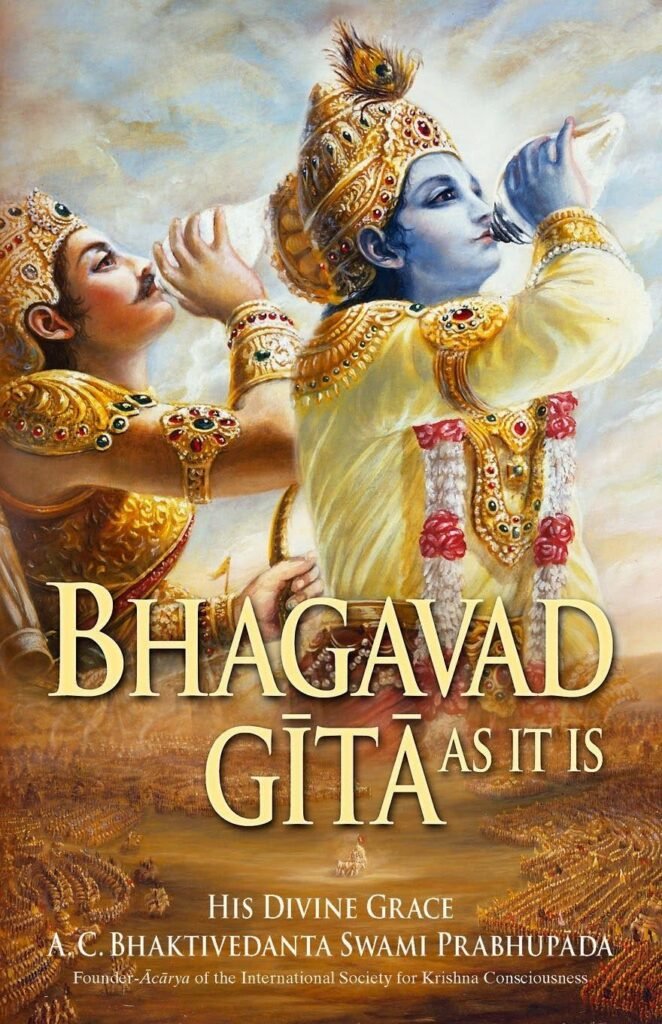
Bhagavad Gita 10.10
तेषां सततयुक्तानां भजतां प्रीतिपूर्वकम्। ददामि बुद्धियोगं तं येन मामुपयान्ति ते।।10.10।।
teṣhāṁ satata-yuktānāṁ bhajatāṁ prīti-pūrvakam dadāmi buddhi-yogaṁ taṁ yena mām upayānti te
teṣhām—to them; satata-yuktānām—ever steadfast; bhajatām—who engage in devotion; prīti-pūrvakam—with love; dadāmi—I give; buddhi-yogam—divine knowledge; tam—that; yena—by which; mām—to me; upayānti—come; te—they
Translation
To those who are ever steadfast, worshipping me with love, I give the yoga of discrimination, by which they come to me.
Commentary
10.10 तेषाम् to them? सततयुक्तानाम् ever steadfast? भजताम् (of the) worshipping? प्रीतिपूर्वकम् with love? ददामि (I) give? बुद्धियोगम् Yoga of discrimination? तम् that? येन by which? माम् to Me? उपयान्ति come? ते they.Commentary The devotees who have dedicated themselves to the Lord? who are ever harmonious and selfabiding? who are ever devout and who adore Him with intense love (not for attaining any selfish purpose)? obtain the divine grace. The Lord gives them wisdom or the Yoga of discrimination or understanding by which they attain the knowledge of the Self. The Lord bestows on these devotees who have fixed their thoughts on Him alone? devotion of right knowledge. (Buddhi Yoga) by which they know Him in essence. They know through the eye of intuition in deep meditaion the Supreme Lord? the One in all? the Self of all? as their own Self? destitue of all limitations. Buddhi here is the inner eye of intuition by which the magnificent experience of oneness is had. Buddhi Yoga is Jnana Yoga. (Cf.IV.39XII.6and7)Why does the Lord impart this Yoga of knowledge to His devotees What obstacles does the Buddhi Yoga remove on the path of the aspirant or devotee The Lord gives the answer in the following verse.
Bhagavad Gita 10.11
तेषामेवानुकम्पार्थमहमज्ञानजं तमः। नाशयाम्यात्मभावस्थो ज्ञानदीपेन भास्वता।।10.11।।
teṣhām evānukampārtham aham ajñāna-jaṁ tamaḥ nāśhayāmyātma-bhāva-stho jñāna-dīpena bhāsvatā
teṣhām—for them; eva—only; anukampā-artham—out of compassion; aham—I; ajñāna-jam—born of ignorance; tamaḥ—darkness; nāśhayāmi—destroy; ātma-bhāva—within their hearts; sthaḥ—dwelling; jñāna—of knowledge; dīpena—with the lamp; bhāsvatā—luminous
Translation
Out of mere compassion for them, I, dwelling within their selves, destroy the darkness born of ignorance with the luminous lamp of knowledge.
Commentary
10.11 तेषाम् for them? एव mere? अनुकम्पार्थम् out of compassion? अहम् I? अज्ञानजम् born of ignorance? तमः darkness? नाशयामि (I) destroy? आत्मभावस्थः dwelling within their self? ज्ञानदीपेन by the lamp of knowledge? भास्वता luminous.Commentary Luminous lamp of knowledge The Lord dwells in the heart of the devotees who constantly think of Him and destroys the veil or the darkness born of ignorance due to the absence of discrimination? by the luminous lamp of knowledge fed by the oil of pure devotion? fanned by the wind of profound meditation on Him? provided with the wick of right intuition? generated by the constant cultivation of celibacy? piety and other divine virtues held in the chambers of the heart free from worldliness? placed in the innermost recesses of the mind free from the wind of senseattractions (withdrawn from the objects of the senses) and untainted by likes and dislikes? and shining with the light of knowledge of the Self caused by the constant practice of meditation.The lamp is not in need of an instrument or means or any sort of practice for the removal of darkness. The generation of the light itself is ite sufficient to remove the darkness. As soon as the darkness is removed by the light? the pot? the chair and the other articles are seen. Even so the dawn of knowledge of the Self itself is ite sufficient to remove ignorance. No other Karma or,practice is necessary. After the ignorance is removed by the knowledge of the Self? Brahman alone shines in Its pristine glory.
Bhagavad Gita 10.12
अर्जुन उवाच परं ब्रह्म परं धाम पवित्रं परमं भवान्। पुरुषं शाश्वतं दिव्यमादिदेवमजं विभुम्।।10.12।।
arjuna uvācha paraṁ brahma paraṁ dhāma pavitraṁ paramaṁ bhavān puruṣhaṁ śhāśhvataṁ divyam ādi-devam ajaṁ vibhum
arjunaḥ uvācha—Arjun said; param—Supreme; brahma—Brahman; param—Supreme; dhāma—Abode; pavitram—purifier; paramam—Supreme; bhavān—you; puruṣham—personality; śhāśhvatam—Eternal; divyam—Divine; ādi-devam—the Primal Being; ajam—the Unborn; vibhum—the Great;
Translation
Arjuna said, “You are the Supreme Brahman, the supreme abode, the supreme purifier, eternal, divine Person, the primeval God, unborn, and omnipresent.”
Commentary
10.12 परम् supreme? ब्रह्म Brahman? परम् supreme? धाम abode? पवित्रम् purifier? परमम् supreme? भवान् Thou? पुरुषम् Purusha? शाश्वतम् eternal? दिव्यम् divine? आदिदेवम् primeval God? अजम् unborn? विभुम् omnipresent.Commentary Param Brahma The highest Self. The word Param indicates the pure and attributeless Absolute? free from the limiting adjuncts. It is Satchidananda Brahman. The inferior Brahman is the Brahman with alities (Saguna) or Isvara? Brahman with the limiting adjuncts or the chosen object of meditation by the devotees.Param Dhama means Param Tejah or the supreme light. From the Creator down to the blade of grass the Supreme Being is the support or substratum. Therefore He is known as the supreme abode.Adideva The primeval God or the original God Who existed before all other gods. This God is Para Brahman Itself. It is selfluminous.Pavitram Paramam Supreme purifier. The sacred rivers and holy places of pilgrimage can remove only the sins but Para Brahman can destroy all sins and ignorance? the root cause of all sins. Therefore Para Brahman or the Supreme Self is the supreme purifier.
Bhagavad Gita 10.13
आहुस्त्वामृषयः सर्वे देवर्षिर्नारदस्तथा। असितो देवलो व्यासः स्वयं चैव ब्रवीषि मे।।10.13।।
āhus tvām ṛiṣhayaḥ sarve devarṣhir nāradas tathā asito devalo vyāsaḥ svayaṁ chaiva bravīṣhi me
āhuḥ—(they) declare; tvām—you; ṛiṣhayaḥ—sages; sarve—all; deva-ṛiṣhiḥ-nāradaḥ—devarṣhi Narad; tathā—also; asitaḥ—Asit; devalaḥ—Deval; vyāsaḥ—Vyās; svayam—personally; cha—and; eva—even; bravīṣhī—you are declaring; me—to me
Translation
All the sages have thus declared Thee, as also the divine sage Narada; so also Asita, Devala, and Vyasa; and now Thou Thyself dost say so to me.
Commentary
10.13 आहुः (they) declared? त्वाम् Thee? ऋषयः the Rishis? सर्वे all? देवर्षिः Devarshi? नारदः Narada? तथा also? असितः Asita? देवलः Devala? व्यासः Vyasa? स्वयम् Thyself? च and? एव even? ब्रवीषि (Thou) sayest? मे to me.Commentary Rishi is a holy sage of disciplined mind and senses.Devarshi A divine sage more highly evolved than a Rishi.
Bhagavad Gita 10.14
सर्वमेतदृतं मन्ये यन्मां वदसि केशव। न हि ते भगवन् व्यक्ितं विदुर्देवा न दानवाः।।10.14।।
sarvam etad ṛitaṁ manye yan māṁ vadasi keśhava na hi te bhagavan vyaktiṁ vidur devā na dānavāḥ
sarvam—everything; etat—this; ṛitam—truth; manye—I accept; yat—which; mām—me; vadasi—you tell; keśhava—Shree Krishna, the killer of the demon named Keshi; na—neither; hi—verily; te—your; bhagavan—the Supreme Lord; vyaktim—personality; viduḥ—can understand; devāḥ—the celestial gods; na—nor; dānavāḥ—the demons
Translation
I believe all that You have said to me to be true, O Krishna; indeed, O blessed Lord! Neither the gods nor the demons know Your manifestation (origin).
Commentary
10.14 सर्वम् all? एतत् this? ऋतम् true? मन्ये (I) think? यत् which? माम् to me? वदसि (Thou) sayest? केशव O Krishna? न not? हि verily? ते Thy? भगवन् O blessed Lord? व्यक्तिम् manifestation? विदुः know? देवाः gods? न not? दानवाः demons.Commentary Bhagavan is He? in whom ever exist the six attributes in their fullness? viz.? Jnana (wisdom)? Vairagya (dispassion)? Aisvarya (lordship)? Dharma (virtue)? Sri (wealth) and Bala (omnipotence). Also? He Who knows the origin? dissolution and the future of all beings and Who is omniscient? is called Bhagavan.Vyakti Origin.Danavah Demons or the Titans.Arjuna addresses the Lord as Keshava (Lord of all) because the Lord knows what is going on in his mind? as He is omniscient. As the Lord is the source of the gods? the demons and others? they cannot comprehend His manifestation or origin. (Cf.IV.6)
Bhagavad Gita 10.15
स्वयमेवात्मनाऽत्मानं वेत्थ त्वं पुरुषोत्तम। भूतभावन भूतेश देवदेव जगत्पते।।10.15।।
swayam evātmanātmānaṁ vettha tvaṁ puruṣhottama bhūta-bhāvana bhūteśha deva-deva jagat-pate
swayam—yourself; eva—indeed; ātmanā—by yourself; ātmānam—yourself; vettha—know; tvam—you; puruṣha-uttama—the Supreme Personality; bhūta-bhāvana—the Creator of all beings; bhūta-īśha—the Lord of everything; deva-deva—the God of gods; jagat-pate—the Lord of the universe
Translation
Verily, Thou Thyself knowest Thyself by Thyself, O Supreme Person, O source and Lord of all beings, O God of gods, O ruler of the world!
Commentary
10.15 स्वयम् Thyself? एव only? आत्मना by Thyself? आत्मानम् Thyself? वेत्थ (Thou) knowest? त्वम् Thou? पुरुषोत्तम O Purusha Supreme? भूतभावन O source of beings? भूतेश O Lord of beings? देवदेव O God of,gods? जगत्पते O ruler of the world.Commentary Purushottama means the best among all Purushas. He assumes the four forms? viz.? the source of beings? the Lord of beings? God of gods and ruler of the world. Hence He is called Purushottama.Devadeva is He who is worshipped even by Indra and other gods.Jagatpati The Lord protects the world and guides the people through the instructions given in the Vedas. Hence the name ruler of the world.
Bhagavad Gita 10.16
वक्तुमर्हस्यशेषेण दिव्या ह्यात्मविभूतयः। याभिर्विभूतिभिर्लोकानिमांस्त्वं व्याप्य तिष्ठसि।।10.16।।
vaktum arhasyaśheṣheṇa divyā hyātma-vibhūtayaḥ yābhir vibhūtibhir lokān imāṁs tvaṁ vyāpya tiṣhṭhasi
vaktum—to describe; arhasi—please do; aśheṣheṇa—completely; divyāḥ—divine; hi—indeed; ātma—your own; vibhūtayaḥ—opulences; yābhiḥ—by which; vibhūtibhiḥ—opulences; lokān—all worlds; imān—these; tvam—you; vyāpya—pervade; tiṣhṭhasi—reside;
Translation
You should indeed tell, without reserve, of your divine glories by which you exist, pervading all these worlds. (No one else can do so.)
Commentary
10.16 वक्तुम् to tell? अर्हसि (Thou) shouldst? अशेषेण without reminder? दिव्याः divine? हि indeed? आत्मविभूतयः Thy glories? याभिः by which? विभूतिभिः by glories? लोकान् worlds? इमान् these? त्वम् Thou? व्याप्य having pervaded? तिष्ठसि existest.No Commentary.
Bhagavad Gita 10.17
कथं विद्यामहं योगिंस्त्वां सदा परिचिन्तयन्। केषु केषु च भावेषु चिन्त्योऽसि भगवन्मया।।10.17।।
kathaṁ vidyām ahaṁ yogins tvāṁ sadā parichintayan keṣhu keṣhu cha bhāveṣhu chintyo ’si bhagavan mayā
katham—how; vidyām aham—shall I know; yogin—the Supreme Master of Yogmaya; tvām—you; sadā—always; parichintayan—meditating; keṣhu—in what; keṣhu—in what; cha—and; bhāveṣhu—forms; chintyaḥ asi—to be thought of; bhagavan—the Supreme Divine Personality; mayā—by me
Translation
How shall I, ever meditating, know you, O Yogin? In what aspects or things, O blessed Lord, should I think of you?
Commentary
10.17 कथम् how? विद्याम् shall know? अहम् I? योगिन् O Yogin? त्वाम् Thee? सदा always? परिचिन्तयन् meditating? केषु केषु in what and what? च and? भावेषु aspects? चिन्त्यः to be thought of? असि (Thou) art? भगवन् O blessed Lord? मया by me.Commentary Arjuna says O Lord? how may I know Thee by constant meditation In what aspects art Thou to be thought of by me Even when I think of external objects I can meditate on Thee in Thy particular manifestations in them if I have a detailed knowledge of Thy glories. Therefore deign to tell me? without reserve? of Thy own glories. Then only can I behold oneness everywhere.
Bhagavad Gita 10.18
विस्तरेणात्मनो योगं विभूतिं च जनार्दन। भूयः कथय तृप्तिर्हि श्रृण्वतो नास्ति मेऽमृतम्।।10.18।।
vistareṇātmano yogaṁ vibhūtiṁ cha janārdana bhūyaḥ kathaya tṛiptir hi śhṛiṇvato nāsti me ’mṛitam
vistareṇa—in detail; ātmanaḥ—your; yogam—divine glories; vibhūtim—opulences; cha—also; janaārdana—Shree Krishna, he who looks after the public; bhūyaḥ—again; kathaya—describe; tṛiptiḥ—satisfaction; hi—because; śhṛiṇvataḥ—hearing; na—not; asti—is; me—my; amṛitam—nectar
Translation
Tell me again in detail, O Krishna, of your yogic power and glory; for I am not satiated with what I have heard of your life-giving and nectar-like speech.
Commentary
10.18 विस्तरेण in detial? आत्मनः Thy? योगम् Yoga? विभूतिम् glory? च and? जनार्दन O Janardana? भूयः again? कथय tell? तृप्तिः contentment? हि for? श्रृण्वतः (of) hearing? न not? अस्ति is? मे of me? अमृतम् nectar.Commentary The Lord is called Janardana because all pray to Him for worldly success? prosperity and also salvation. Arjuna also prays to the Lord to explain His Yogic power and glory? for his salvation.Arjuna says to Lord Krishna Tell me in detail of Thy mysterious power (Yoga) and sovereignty (Aisvarya) and the various things to be meditated upon. Tell me again though You have described earlier in the seventh and the ninth chapters succinctly for there is no satiety in hearing Thy ambrosial speech or nectarlike conversation. However much of it I hear? I am not satisfied surely it is nectar of immortality for me.
Bhagavad Gita 10.19
श्री भगवानुवाच हन्त ते कथयिष्यामि दिव्या ह्यात्मविभूतयः। प्राधान्यतः कुरुश्रेष्ठ नास्त्यन्तो विस्तरस्य मे।।10.19।।
śhrī bhagavān uvācha hanta te kathayiṣhyāmi divyā hyātma-vibhūtayaḥ prādhānyataḥ kuru-śhreṣhṭha nāstyanto vistarasya me
śhrī-bhagavān uvācha—the Blessed Lord spoke; hanta—yes; te—to you; kathayiṣhyāmi—I shall describe; divyāḥ—divine; hi—certainly; ātma-vibhūtayaḥ—my divine glories; prādhānyataḥ—salient; kuru-śhreṣhṭha—best of the Kurus; na—not; asti—is; antaḥ—limit; vistarasya—extensive glories; me—my
Translation
The Blessed Lord said, “Very well! Now I will declare to you My divine glories in their prominence, O Arjuna; there is no end to their detailed description.”
Commentary
10.19 हन्त now? very well? ते to thee? कथयिष्यामि (I) will declare? दिव्याः divine? हि indeed? आत्मविभूतयः My glories? प्राधान्यतः in their prominence? कुरुश्रेष्ठ O best of the Kurus? न not? अस्ति is? अन्तः end? विस्तरस्य of detail? मे of Me.Commentary Now I will tell you of My most prominent divine glories. My glories are illimitable it is not possible to describe all of them.
Bhagavad Gita 10.20
अहमात्मा गुडाकेश सर्वभूताशयस्थितः। अहमादिश्च मध्यं च भूतानामन्त एव च।।10.20।।
aham ātmā guḍākeśha sarva-bhūtāśhaya-sthitaḥ aham ādiśh cha madhyaṁ cha bhūtānām anta eva cha
aham—I; ātmā—soul; guḍākeśha—Arjun, the conqueror of sleep; sarva-bhūta—of all living entities; āśhaya-sthitaḥ—seated in the heart; aham—I; ādiḥ—the beginning; cha—and; madhyam—middle; cha—and; bhūtānām—of all beings; antaḥ—end; eva—even; cha—also
Translation
I am the Self, O Gudakesa, seated in the hearts of all beings; I am the beginning, the middle, and the end of all beings.
Commentary
10.20 अहम् I? आत्मा the Self? गुडाकेश O Gudakesa? सर्वभूताशयस्थितः seated in the hearts of all beings? अहम् I? आदिः the beginning? च and? मध्यम् the middle? च and? भूतानाम् of (all) beings? अन्तः the end? एव even? च and.Commentary O Gudakesa I am the soul (Pratyagatma) which exists in the hearts of all beings and I am also the source or origin? the middle or stay? and the end of all created beings. I am the birth? the life and the death of all beings. Meditate on Me as the innermost Self.Gudakesa means either coneror of sleep or thickhaired.He who is able to meditate on the Self with Abheda Bhavana (attitude of nonduality)? is a alified aspirant (Adhikari) of the first class. He who is not able to meditate on the Self should think of the Lord in those things which are mentioned below. This type of meditation is for the aspirants of the middle class.
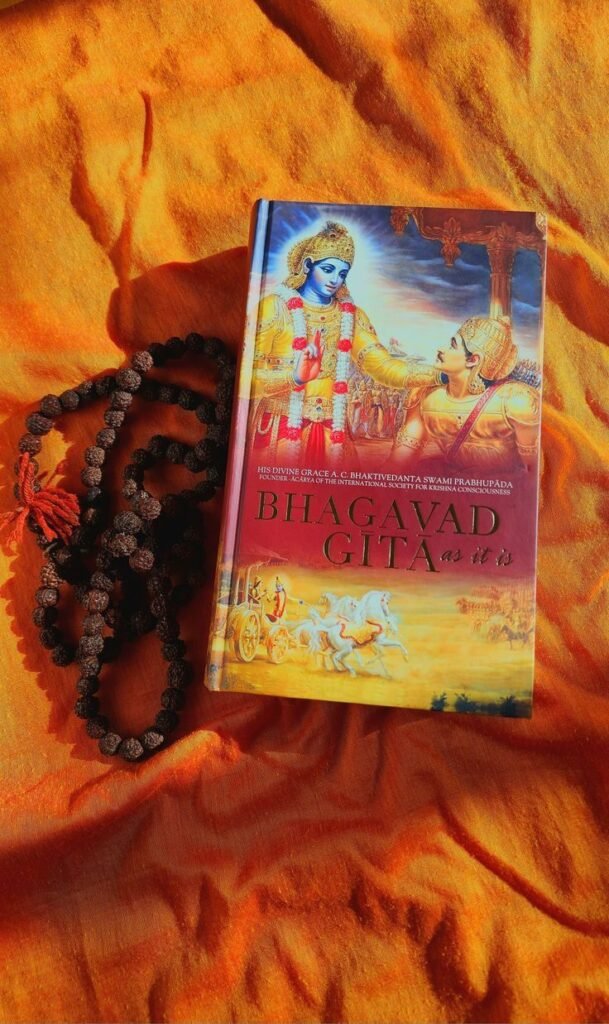
Bhagavad Gita 10.21
आदित्यानामहं विष्णुर्ज्योतिषां रविरंशुमान्। मरीचिर्मरुतामस्मि नक्षत्राणामहं शशी।।10.21।।
ādityānām ahaṁ viṣhṇur jyotiṣhāṁ ravir anśhumān marīchir marutām asmi nakṣhatrāṇām ahaṁ śhaśhī
ādityānām—amongst the twelve sons of Aditi; aham—I; viṣhṇuḥ—Lord Vishnu; jyotiṣhām—amongst luminous objects; raviḥ—the sun; anśhu-mān—radiant; marīchiḥ—Marichi; marutām—of the Maruts; asmi—(I) am; nakṣhatrāṇām—amongst the stars; aham—I; śhaśhī—the moon
Translation
Among the twelve Adityas, I am Vishnu; among luminaries, the radiant sun; among the seven or forty-nine Maruts, I am Marichi; among stars, I am the moon.
Commentary
10.21 आदित्यानम् among the Adityas? अहम् I? विष्णुः Vishnu? ज्योतिषाम् among lights? रविः the sun? अंशुमान् radiant? मरीचिः Marichi? मरुताम् of the Maruts (winds)? अस्मि (I) am? नक्षत्राणाम् among the stars? अहम् I? शशी the moon.Commentary Of the twelve Adityas I am the Aditya known as Vishnu? Dhata? Mitra? Aryama? Rudra? Varuna? Bhaga? Surya? Vivasvan? Pusham? Savita? Tvashta and Vishnu are the twelve Adityas. The twelve months of the year are the Adityas.The Maruts are the gods controlling the winds. Some hold that there are seven of them while others say there are fortynine.The twelve Adityas? the luminaries like Agni? lightning? etc.? the Maruts? the stars? etc.? are the Samanya Vibhutis (ordinary manifestations) of the Lord. Vishnu? the sun? Marichi? and the moon are His Visesha Vibhutis (special manifestations) and hence they have greater splendour in them.You can superimpose the Lord on the sun and the moon? and meditate on them as forms of the Lord. You can practise the same kind of meditation on all forms mentioned in the following verses of this chapter.
Bhagavad Gita 10.22
वेदानां सामवेदोऽस्मि देवानामस्मि वासवः। इन्द्रियाणां मनश्चास्मि भूतानामस्मि चेतना।।10.22।।
vedānāṁ sāma-vedo ’smi devānām asmi vāsavaḥ indriyāṇāṁ manaśh chāsmi bhūtānām asmi chetanā
vedānām—amongst the Vedas; sāma-vedaḥ—the Sāma Veda; asmi—I am; devānām—of all the celestial gods; asmi—I am; vāsavaḥ̣—Indra; indriyāṇām—of amongst the senses; manaḥ—the mind; ca—and; asmi—I am; bhūtānām—amongst the living beings; asmi—I am; chetanā—consciousness
Translation
Among the Vedas, I am the Sama-Veda; among the gods, I am Vasava; among the senses, I am the mind; and among living beings, I am intelligence.
Commentary
10.22 वेदानाम् among the Vedas? सामवेदः the Sama Veda? अस्मि (I) am? देवानाम् among the gods? अस्मि (I) am? वासवः Indra? इन्द्रियाणाम् among the senses? मनः mind? च and? अस्मि (I) am? भूतानाम् among living beings? अस्मि (I) am? चेतना intelligence.Commentary Vasava is Indra.Gods Such as Rudras? Adityas.Indriyas The five JnanaIndriyas or organs of knowledge? viz.? ear? skin? eye? tongue and nose and the five KarmaIndriyas or organs of action? viz.? speech? hands? feet? genitals and anus. The mind is regarded as the eleventh sense. As the senses cannot function without the help of the mind? the mind is regarded as the chief among the senses.Chetana Intelligence is that state of intellect which is manifest in the aggregate of the body and the senses.That which illumines all? from the intellect down to the grossest object? is called Chetana.
Bhagavad Gita 10.23
रुद्राणां शङ्करश्चास्मि वित्तेशो यक्षरक्षसाम्। वसूनां पावकश्चास्मि मेरुः शिखरिणामहम्।।10.23।।
rudrāṇāṁ śhaṅkaraśh chāsmi vitteśho yakṣha-rakṣhasām vasūnāṁ pāvakaśh chāsmi meruḥ śhikhariṇām aham
rudrāṇām—amongst the Rudras; śhaṅkaraḥ—Lord Shiv; cha—and; asmi—I am; vitta-īśhaḥ—the god of wealth and the treasurer of the celestial gods; yakṣha—amongst the semi-divine demons; rakṣhasām—amongst the demons; vasūnām—amongst the Vasus; pāvakaḥ—Agni (fire); cha—and; asmi—I am; meruḥ—Mount Meru; śhikhariṇām—amongst the mountains; aham—I am
Translation
And among the Rudras, I am Sankara; among the Yakshas and Rakshasas, the Lord of Wealth (Kubera); among the Vasus, I am Pavaka (Fire); and among the seven mountains, I am Meru.
Commentary
10.23 रुद्राणाम् among the Rudras? शङ्करः Sankara? च and? अस्मि (I) am? वित्तेशः Kubera? यक्षरक्षसाम्,among celestial fairies and spirits? वसूनाम् among Vasus? पावकः Pavaka? च and? अस्मि (I) am? मेरुः Meru? शिखरिणाम् of mountains? अहम् I.Commentary Rudras are eleven in number. The ten vital airs (Pranas and the UpaPranas? which are five each) and the mind are the eleven Rudras. They are so called because they produce grief when they depart from the body. They have been symbolised in the Puranas as follows Virabhadra? Sankara? Girisa? Ajaikapati? Bhuvanadhisvara? Aherbhujya? Pinaki? Aparajita? Kapali? Sthanu and Bhaga. Among these Rudras? Sankara is regarded as the chief.Vasus are earth? water? fire? air? ether? sun? moon and stars. They are so called because they comprehend the whole universe within them. They have been symbolised in the Puranas as follows Apah? Dhruva? Soma? Dhara? Anila? Anala? Pratyusa and Prabhasa. Of these Anala or Pavaka (fire) is the chief.
Bhagavad Gita 10.24
पुरोधसां च मुख्यं मां विद्धि पार्थ बृहस्पतिम्। सेनानीनामहं स्कन्दः सरसामस्मि सागरः।।10.24।।
purodhasāṁ cha mukhyaṁ māṁ viddhi pārtha bṛihaspatim senānīnām ahaṁ skandaḥ sarasām asmi sāgaraḥ
purodhasām—amongst priests; cha—and; mukhyam—the chiefs; mām—me; viddhi—know; pārtha—Arjun, the son of Pritha; bṛihaspatim—Brihaspati; senānīnām—warrior chief; aham—I; skandaḥ—Kartikeya; sarasām—amongst reservoirs of water; asmi—I am; sāgaraḥ—the ocean
Translation
And, among the household priests of kings, O Arjuna, know Me to be the chief, Brihaspati; among the army generals, I am Skanda; among lakes, I am the ocean.
Commentary
10.24 पुरोधसाम् among the household priests? च and? मुख्यम् the chief? माम् Me? विद्धि know? पार्थ O Partha? बृहस्पतिम् Brihaspati? सेनानीनाम् among generals? अहम् I? स्कन्दः Skanda? सरसाम् among lakes? अस्मि (I) am? सागरः the ocean.Commentary Brihaspati is the chif priest of the gods. He is the househld priest of Indra.Skanda is Kartikeya or Lord Subramanya. He is the general of the hosts of the gods.Of things holding water — natural reservoirs or lakes — I am the ocean.
Bhagavad Gita 10.25
महर्षीणां भृगुरहं गिरामस्म्येकमक्षरम्। यज्ञानां जपयज्ञोऽस्मि स्थावराणां हिमालयः।।10.25।।
maharṣhīṇāṁ bhṛigur ahaṁ girām asmyekam akṣharam yajñānāṁ japa-yajño ’smi sthāvarāṇāṁ himālayaḥ
mahā-ṛiṣhīṇām—among the great seers; bhṛiguḥ—Bhrigu; aham—I; girām—amongst chants; asmi—I am; ekam akṣharam—the syllable Om; yajñānām—of sacrifices; japa-yajñaḥ—sacrifice of the devotional repetition of the divine names of God; asmi—I am; sthāvarāṇām—amongst immovable things; himālayaḥ—the Himalayas
Translation
Among the great sages, I am Bhrigu; among words, I am the one syllable (Om); among sacrifices, I am the sacrifice of silent repetition; among the immovable things, I am the Himalayas.
Commentary
10.25 महर्षीणाम् among the great Rishis? भृगुः Bhrigu? अहम् I? गिराम् among words? अस्मि (I) am? ऐकम् the one? अक्षरम् syllable? यज्ञानाम् among sacrifices? जपयज्ञः the sacrifice of silent repetition? अस्मि (I) am? स्थावराणाम् among immovable things? हिमालयः Himalayas.Commentary Manu has said Whatever else the Brahmana may or may not do? he attains salvation by Japa (silent repetition of a Mantra) alone.Bhrigu is one of the mindborn of the Creator.Himalaya The highest mountain range in the world.Japayajna There is neither injury nor loss in this Yajna. Therefore? it is regarded as the best of all Yajnas.
Bhagavad Gita 10.26
अश्वत्थः सर्ववृक्षाणां देवर्षीणां च नारदः। गन्धर्वाणां चित्ररथः सिद्धानां कपिलो मुनिः।।10.26।।
aśhvatthaḥ sarva-vṛikṣhāṇāṁ devarṣhīṇāṁ cha nāradaḥ gandharvāṇāṁ chitrarathaḥ siddhānāṁ kapilo muniḥ
aśhvatthaḥ—the banyan tree; sarva-vṛikṣhāṇām—amongst all trees; deva-ṛiṣhīṇām—amongst celestial sages; cha—and; nāradaḥ—Narad; gandharvāṇām—amongst the gandharvas; chitrarathaḥ—Chitrarath; siddhānām—of all those who are perfected; kapilaḥ muniḥ—sage Kapil
Translation
Among all the trees, I am the Peepul; among the divine sages, I am Narada; among the Gandharvas, I am Chitraratha; among the perfected, I am the sage Kapila.
Commentary
10.26 अश्वत्थः Asvattha? सर्ववृक्षाणाम् among all trees? देवर्षीणाम् among Divine Rishis? च and? नारदः Narada? गन्धर्वाणाम् among Gandharvas? चित्ररथः Chitraratha? सिद्धानाम् among the Siddhas or the perfected? कपिलः Kapila? मुनिः sage.Commentary Devarshis are gods and at the same time Rishis or seers of Mantras.Siddhas are the perfected ones those who at their very birth attained without any effort Dharma (virtue)? Jnana (knowledge of the Self)? Vairagya (dispassion) and Aisvarya (lordship).Muni is one who does Manana or reflection one who meditates.
Bhagavad Gita 10.27
उच्चैःश्रवसमश्वानां विद्धि माममृतोद्भवम्। ऐरावतं गजेन्द्राणां नराणां च नराधिपम्।।10.27।।
uchchaiḥśhravasam aśhvānāṁ viddhi mām amṛitodbhavam airāvataṁ gajendrāṇāṁ narāṇāṁ cha narādhipam
uchchaiḥśhravasam—Uchchaihshrava; aśhvānām—amongst horses; viddhi—know; mām—me; amṛita-udbhavam—begotten from the churning of the ocean of nectar; airāvatam—Airavata; gaja-indrāṇām—amongst all lordly elephants; narāṇām—amongst humans; cha—and; nara-adhipam—the king
Translation
Know Me as Ucchaisravas, born of nectar, among horses; Airavata among lordly elephants; and the king among men.
Commentary
10.27 उच्चैःश्रवसम् Ucchaisravas? अश्वानम् among horses? विद्धि know? माम् Me? अमृतोद्भवम् born of nectar?,ऐरावतम् Airavata? गजेन्द्राणाम् among lordly elephants? नराणाम् among men? च and? नराधिपम् the king.Commentary Nectar was obtained by the gods by churning the ocean of milk. Ucchaisravas is the name of the royal horse which was born in that ocean of milk when it was churned for the nectar.Airavatam The offspring of Iravati? the elephant of Indra born at the time when the ocean of milk was churned.
Bhagavad Gita 10.28
आयुधानामहं वज्रं धेनूनामस्मि कामधुक्। प्रजनश्चास्मि कन्दर्पः सर्पाणामस्मि वासुकिः।।10.28।।
āyudhānām ahaṁ vajraṁ dhenūnām asmi kāmadhuk prajanaśh chāsmi kandarpaḥ sarpāṇām asmi vāsukiḥ
āyudhānām—amongst weapons; aham—I; vajram—the Vajra (thunderbolt); dhenūnām—amongst cows; asmi—I am; kāma-dhuk—Kamdhenu; prajanaḥ—amongst causes for procreation; cha—and; asmi—I am; kandarpaḥ—Kaamdev, the god of love; sarpāṇām—amongst serpents; asmi—I am; vāsukiḥ—serpent Vasuki
Translation
Among weapons, I am the thunderbolt; among cows, I am the wish-fulfilling cow called Kamadhenu; I am the progenitor, the god of love; among serpents, I am Vasuki.
Commentary
10.28 आयुधानम् among weapons? अहम् I? वज्रम् the thunderbolt? धेनूनाम् among cows? अस्मि (I) am? कामधुक् kamadhenu? the heavenly cow which yiedls all desires? प्रजनः the progenitro? च and? अस्मि (I) am? कन्दर्पः Kandarpa (Kamadeva)? सर्पाणाम् among serpents? अस्मि (I) am? वासुकिः Vasuki.Commentary Vajram the thunderbolt weapon made of the bones of Dadhichi an implement of warfare which can only be handled by Indra who has fininshed a hundred sacrifices.Kamadhuk The cow Kamadhenu of the great sage Vasishtha which yielded all the desired objects? also born of the ocean of milk.Kandarpa Cupid.Vasuki The Lord of hoodless or ordinary serpents.Sarpa (serpent) has only one head. Vasuki is yellowcoloured. Nagas have many heads. Ananta is firecoloured.Sridhara says that the Sarpa is poisonous and the Naga is nonpoisonous. Sri Ramanuja says that Sarpa has only one head and Naga has many heads.
Bhagavad Gita 10.29
अनन्तश्चास्मि नागानां वरुणो यादसामहम्। पितृ़णामर्यमा चास्मि यमः संयमतामहम्।।10.29।।
anantaśh chāsmi nāgānāṁ varuṇo yādasām aham pitṝīṇām aryamā chāsmi yamaḥ sanyamatām aham
anantaḥ—Anant; cha—and; asmi—I am; nāgānām—amongst snakes; varuṇaḥ—the celestial god of the ocean; yādasām—amongst aquatics; aham—I; pitṝīṇām—amongst the departed ancestors; aryamā—Aryama; cha—and; asmi—am; yamaḥ—the celestial god of death; sanyamatām—amongst dispensers of law; aham—I
Translation
I am Ananta among the Nagas; I am Varuna among water-deities; Aryaman among the Manes; I am Yama among the governors.
Commentary
10.29 अनन्तः Ananta? च and? अस्मि (I) am? नागानाम् among Nagas? वरुणः Varuna? यादसाम् among watergods? अहम् I? पितृ़णाम् among the Pitris or ancestors? अर्यमा Aryaman? च and? अस्मि (I) am? यमः Yama? संयमताम् among governors? अहम् I.Commentary Ananta is the king of hooded serpents or cobras. He is firecoloured.Varuna is the king of the watergods.Waterdeities The gods connected with waters.Aryaman is the king of the manes.I am Yama? the witness of the acts of all living beings? who keeps account of the good and bad actions of the people.
Bhagavad Gita 10.30
प्रह्लादश्चास्मि दैत्यानां कालः कलयतामहम्। मृगाणां च मृगेन्द्रोऽहं वैनतेयश्च पक्षिणाम्।।10.30।।
prahlādaśh chāsmi daityānāṁ kālaḥ kalayatām aham mṛigāṇāṁ cha mṛigendro ’haṁ vainateyaśh cha pakṣhiṇām
prahlādaḥ—Prahlad; cha—and; asmi—I am; daityānām—of the demons; kālaḥ—time; kalayatām—of all that controls; aham—I; mṛigāṇām—amongst animals; cha—and; mṛiga-indraḥ—the lion; aham—I; vainateyaḥ—Garud; cha—and; pakṣhiṇām—amongst birds
Translation
And I am Prahlada among the demons, I am Time among reckoners, I am the lion among beasts, and Vainateya (Garuda) among birds.
Commentary
10.30 प्रह्लादः Prahlada? च and? अस्मि (I) am? दैत्यानाम् among demons? कालः time? कलयताम् among reckoners? अहम् I? मृगाणाम् among beasts? च and? मृगेन्द्रः lion? अहम् I? वैनतेयः son of Vinata (Garuda)? च and? पक्षिणाम् among birds.Commentary Prahlada? though he was the son of a demon (Hiranyakasipu)? was a great devotee of the Lord.
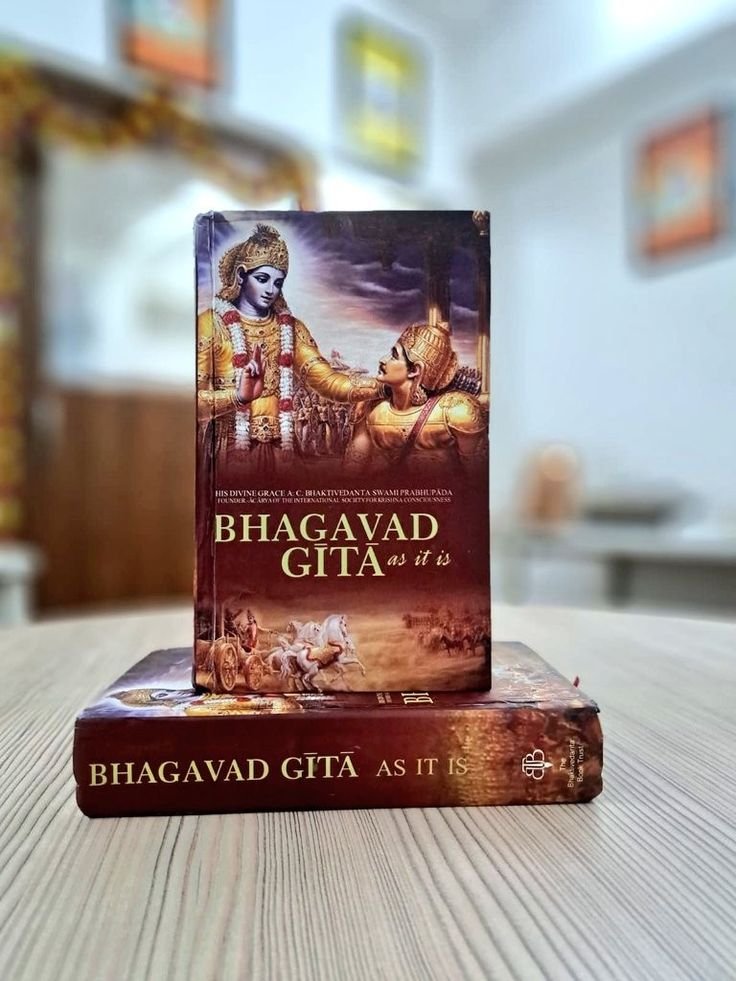
Bhagavad Gita 10.31
पवनः पवतामस्मि रामः शस्त्रभृतामहम्। झषाणां मकरश्चास्मि स्रोतसामस्मि जाह्नवी।।10.31।।
pavanaḥ pavatām asmi rāmaḥ śhastra-bhṛitām aham jhaṣhāṇāṁ makaraśh chāsmi srotasām asmi jāhnavī
pavanaḥ—the wind; pavatām—of all that purifies; asmi—I am; rāmaḥ—Ram; śhastra-bhṛitām—of the carriers of weapons; aham—I am; jhaṣhāṇām—of all acquatics; makaraḥ—crocodile; cha—also; asmi—I am; srotasām—of flowing rivers; asmi—I am; jāhnavī—the Ganges
Translation
Among the purifiers, I am the wind; among the warriors, I am Rama; among the fishes, I am the shark; among the streams, I am the Ganga.
Commentary
10.31 पवनः the wind? पवताम् among purifiers or the speeders? अस्मि (I) am? रामः Rama? शस्त्रभृताम् among wielders of weapons (warriors)? अहम् I? झषाणाम् among fishes? मकरः Makara (shark)? च and? अस्मि (I) am? स्रोतसाम् among streams? अस्मि (I) am? जाह्नवी the Ganga.Commentary The holy river Ganga (spelt Ganges in English) was swallowed by Jahnu when she was being brought down by Bhagiratha from heaven. Hence the name Jahnavi for Ganga.
Bhagavad Gita 10.32
सर्गाणामादिरन्तश्च मध्यं चैवाहमर्जुन। अध्यात्मविद्या विद्यानां वादः प्रवदतामहम्।।10.32।।
sargāṇām ādir antaśh cha madhyaṁ chaivāham arjuna adhyātma-vidyā vidyānāṁ vādaḥ pravadatām aham
sargāṇām—of all creations; ādiḥ—the beginning; antaḥ—end; cha—and; madhyam—middle; cha—and; eva—indeed; aham—I; arjuna—Arjun; adhyātma-vidyā—science of spirituality; vidyānām—amongst sciences; vādaḥ—the logical conclusion; pravadatām—of debates; aham—I
Translation
Among creations I am the beginning, the middle, and the end, O Arjuna; among the sciences, I am the science of the Self; and I am the logic among controversialists.
Commentary
10.32 सर्गाणाम् among creations? आदिः the beginning? अन्तः the end? च and? मध्यम् the middle? च and? एव also? अहम् I? अर्जुन O Arjuna? अध्यात्मविद्या the science of the Self? विद्यानाम् among sciences? वादः logic? प्रवदताम् among controversialists? अहम् I.Commentary I am the metaphysics among all sciences. I am knowledge of the Self among all branches of knowledge. I am the argument of dators. I am the logic of disputants. I am the speech of orators.In verse 20 above the Lord says? I am the beginning? the middle and the end of the whole movable and immovable creation. Here the whole creation in general is referred to.As the knowledge of the Self leads to the attainment of the final beatitude of life or salvation? it is the chief among all branches of knowledge.Pravadatam By the word controversialists? we should here understand the various kinds of people using various kinds of argumentation in logic such as Vada? Jalpa and Vitanda. Yada is a way of arguing by which one gets at the truth of a certain estion. The aspirants who are free from RagaDvesha and jealousy raise amongst themselves estions and answers and enter into discussions on philosophical problems in order to ascertain and understand the nature of the Truth. They do not argue in order to gain victory over one another. This is Vada. Jalpa is wrangling in which one asserts his own opinion and refutes that of his opponent. Vitanda is idle carping at the arguments of ones opponents. No attempt is made to establish the other side of the estion. In Jalpa and Vitanda one tries to defeat another. There is desire for victory.
Bhagavad Gita 10.33
अक्षराणामकारोऽस्मि द्वन्द्वः सामासिकस्य च। अहमेवाक्षयः कालो धाताऽहं विश्वतोमुखः।।10.33।।
अहमेवाक्षय: कालो धाताहं विश्वतोमुख: || 33|| akṣharāṇām a-kāro ’smi dvandvaḥ sāmāsikasya cha aham evākṣhayaḥ kālo dhātāhaṁ viśhvato-mukhaḥ
akṣharāṇām—amongst all letters; a-kāraḥ—the beginning letter “A”; asmi—I am; dvandvaḥ—the dual; sāmāsikasya—amongst grammatical compounds; cha—and; aham—I; eva—only; akṣhayaḥ—endless; kālaḥ—time; dhātā—amongst the creators; aham—I; viśhwataḥ-mukhaḥ—Brahma
Translation
Among the letters of the alphabet, I am the letter ‘A’ and the dual among compounds. I am verily the inexhaustible and everlasting time; I am the dispenser of the fruits of actions, having faces in all directions.
Commentary
10.33 अक्षराणाम् among letters? अकारः the letter A? अस्मि (I) am? द्वन्द्वः the dual? सामासिकस्य among all compounds? च and? अहम् I? एव verily? अक्षयः the inexhaustible or everlasting? कालः time? धाता the dispenser? अहम् I? विश्वतोमुखः the Allfaced (or having faces in all directions).Commentary Among the alphabets I am the letter A. Among the various kinds of compounds used in Sanskrit language I am the Dvandva (union of the two)? the copulative.Time here refers to the moment? the ultimate element of time or to Paramesvara? the Supreme Lord Who is the time of even time? since He is beyond time.As the Supreme Being is allpervading it is said that He has faces in all directions.
Bhagavad Gita 10.34
मृत्युः सर्वहरश्चाहमुद्भवश्च भविष्यताम्। कीर्तिः श्रीर्वाक्च नारीणां स्मृतिर्मेधा धृतिः क्षमा।।10.34।।
mṛityuḥ sarva-haraśh chāham udbhavaśh cha bhaviṣhyatām kīrtiḥ śhrīr vāk cha nārīṇāṁ smṛitir medhā dhṛitiḥ kṣhamā
mṛityuḥ—death; sarva-haraḥ—all-devouring; cha—and; aham—I; udbhavaḥ—the origin; cha—and; bhaviṣhyatām—those things that are yet to be; kīrtiḥ—fame; śhrīḥ—prospective; vāk—fine speech; cha—and; nārīṇām—amongst feminine qualities; smṛitiḥ—memory; medhā—intelligence; dhṛitiḥ—courage; kṣhamā—forgiveness
Translation
And I am the all-devouring Death, and the source of prosperity for those who are to be prosperous; among the feminine qualities, I am fame, prosperity, speech, memory, intelligence, firmness, and forgiveness.
Commentary
10.34 मृत्युः death? सर्वहरः alldevouring? च and? अहम् I? उद्भवः the prosperity? च and? भविष्यताम् of those who are to be prosperous? कीर्तिः frame? श्रीः prosperity? वाक् speech? च and? नारीणाम् of the feminine? स्मृतिः the memory? मेधा intelligence? धृतिः firmness? क्षमा forgiveness.Commentary I am also the allsnatching death that destroys everything. Death is of two kinds? viz.? he who seizes wealth and he who seizes life. Of them he who seizes life is the allseizer and,hence he is called Sarvaharah. I am he.Or? there is another interpretation. I am the Supreme Lord Who is the allseizer? because I destroy everything at the time of the cosmic dissolution.I am the origin of all the beings to be born in the future. I am the prosperity and the means of achieving it of those who are fit to attain it.Beauty is Sri. Lustre is Sri. I am fame? the best of the feminine alities. People who have attained slight fame think that they have achieved great success in life and that they have become very big or great men. I am speech which adorns the throne of justice. I am memory which recalls objects and pleasures of the past.The power of the mind which enables one to hold the teachings of the scriptures is Medha. Firmness or Dhriti is the power to keep the body and the senses steady even amidst various kinds of sufferings. The power to keep oneself unattached even while doing actions is Dhriti. It also means courage. Kshama also means endurance.Fame? prosperity? memory? intelligence and firmness are the daughters of Daksha. They had been given in marriage to Dhrama and so they are all called Dharmapatnis.
Bhagavad Gita 10.35
बृहत्साम तथा साम्नां गायत्री छन्दसामहम्। मासानां मार्गशीर्षोऽहमृतूनां कुसुमाकरः।।10.35।।
bṛihat-sāma tathā sāmnāṁ gāyatrī chhandasām aham māsānāṁ mārga-śhīrṣho ’ham ṛitūnāṁ kusumākaraḥ
bṛihat-sāma—the Brihatsama; tathā—also; sāmnām—amongst the hymns in the Sama Veda; gāyatrī—the Gayatri mantra; chhandasām—amongst poetic meters; aham—I; māsānām—of the twelve months; mārga-śhīrṣhaḥ—the month of November-December; aham—I; ṛitūnām—of all seasons; kusuma-ākaraḥ—spring
Translation
Among the hymns, I am the Brihatsaman; among meters, I am Gayatri; among months, I am Margasirsha; among seasons, I am the flowery season.
Commentary
10.35 बृहत्साम Brihatsaman? तथा also? साम्नाम् among Sama hymns? गायत्री Gayatri? छन्दसाम् among metres? अहम् I? मासानाम् among months? मार्गशीर्षः Margasirsha? अहम् I? ऋतूनाम् among seasons? कुसुमाकरः the flowery season (spring).Commentary Brihatsaman is the chief of the hymns of the SamaVeda. Brihat means big.Margasirsha From the middle of December to the middle of January. This has a temperate climate. In olden days it was usual to start with this month in counting the months of the year. The first place was given to this month.Kusumakara The beautiful flowery season? the spring.
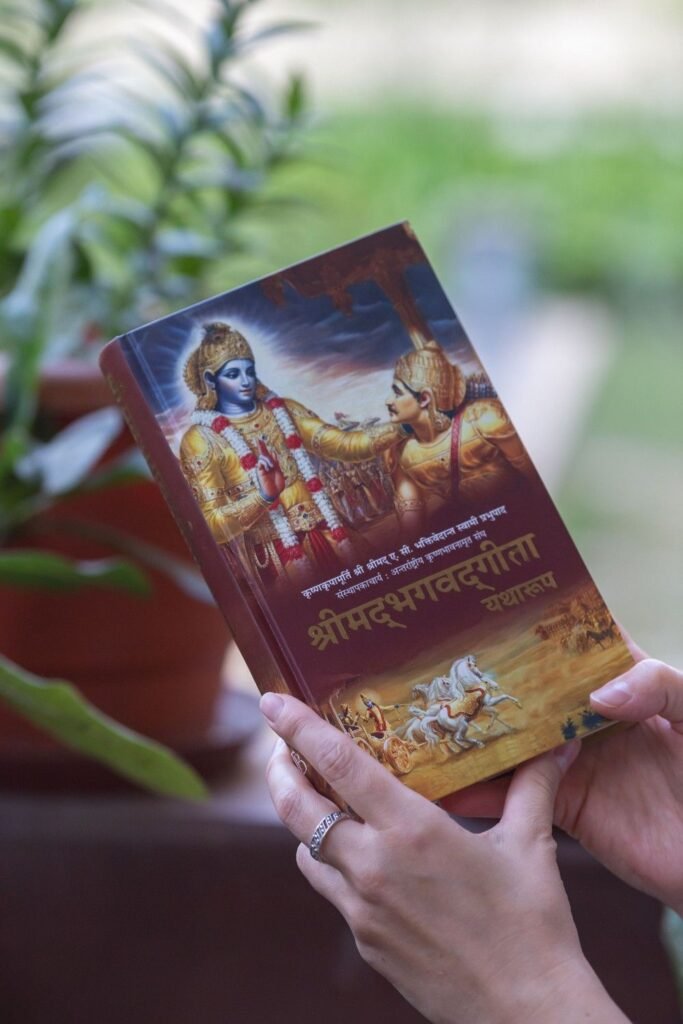
Bhagavad Gita 10.36
द्यूतं छलयतामस्मि तेजस्तेजस्विनामहम्। जयोऽस्मि व्यवसायोऽस्मि सत्त्वं सत्त्ववतामहम्।।10.36।।
dyūtaṁ chhalayatām asmi tejas tejasvinām aham jayo ’smi vyavasāyo ’smi sattvaṁ sattvavatām aham
dyūtam—gambling; chhalayatām—of all cheats; asmi—I am; tejaḥ—the splendor; tejasvinām—of the splendid; aham—I; jayaḥ—victory; asmi—I am; vyavasāyaḥ—firm resolve; asmi—I am; sattvam—virtue; sattva-vatām—of the virtuous; aham—I
Translation
I am the gambling of the deceitful; I am the splendor of the splendid; I am victory; I am the resolve of the resolute; I am the goodness of the good.
Commentary
10.36 द्यूतम् the gambling? छलयताम् of the fraudulent? अस्मि (I) am? तेजः splendour? तेजस्विनाम् of the splendid? अहम् I? जयः victory? अस्मि (I) am? व्यवसायः determination? अस्मि (I) am? सत्त्वम् the goodness? सत्त्ववताम् of the good? अहम् I.Commentary Of the methods of defrauding others I am gambling such as diceplay. Gambling is My manifestation. I am the power of the powerful. I am the victoyr of the victorious. I am the effort of those who make that effort.I am Sattva which assumes the forms of Dharma (virtue)? Jnana (knowledge)? Vairagya (dispassion)? and Aisvarya (wealth or lordship) in Sattvic persons.
Bhagavad Gita 10.37
वृष्णीनां वासुदेवोऽस्मि पाण्डवानां धनंजयः। मुनीनामप्यहं व्यासः कवीनामुशना कविः।।10.37।।
vṛiṣhṇīnāṁ vāsudevo ’smi pāṇḍavānāṁ dhanañjayaḥ munīnām apyahaṁ vyāsaḥ kavīnām uśhanā kaviḥ
vṛiṣhṇīnām—amongst the descendants of Vrishni; vāsudevaḥ—Krishna, the son of Vasudev; asmi—I am; pāṇḍavānām—amongst the Pandavas; dhanañjayaḥ—Arjun, the conqueror of wealth; munīnām—amongst the sages; api—also; aham—I; vyāsaḥ—Ved Vyas; kavīnām—amongst the great thinkers; uśhanā—Shukracharya; kaviḥ—the thinker
Translation
Among the Vrishnis, I am Vaasudeva; among the Pandavas, I am Arjuna; among the sages, I am Vyasa; among the poets, I am Usanas, the poet.
Commentary
10.37 वृष्णीनाम among the Vrishnis? वासुदेवः Vaasudeva? अस्मि (I) am? पाण्डवानाम् among the Pandavas? धनञ्जयः Dhananjaya? मुनीनाम् among the sages? अपि also? अहम् I? व्यासः Vyasa? कवीनाम् among poets? उशनाः Usanas? कविः the poet.Commentary Vrishnis are Yadavas or the descendants of Yadu. I am the foremost among them.Usanas is Sukracharya? the preceptor of the demons.
Bhagavad Gita 10.38
दण्डो दमयतामस्मि नीतिरस्मि जिगीषताम्। मौनं चैवास्मि गुह्यानां ज्ञानं ज्ञानवतामहम्।।10.38।।
daṇḍo damayatām asmi nītir asmi jigīṣhatām maunaṁ chaivāsmi guhyānāṁ jñānaṁ jñānavatām aham
daṇḍaḥ—punishment; damayatām—amongst means of preventing lawlessness; asmi—I am; nītiḥ—proper conduct; asmi—I am; jigīṣhatām—amongst those who seek victory; maunam—silence; cha—and; eva—also; asmi—I am; guhyānām—amongst secrets; jñānam—wisdom; jñāna-vatām—in the wise; aham—I
Translation
Of those who punish, I am the scepter; among those who seek victory, I am statesmanship; and among secrets, I am silence; I am knowledge among knowers.
Commentary
10.38 दण्डः the sceptre? दमयताम् among punishers? अस्मि (I) am? नीतिः statesmanship? अस्मि (I) am? जिगीषताम् among thoese who seek victory? मौनम् silence? च and? एव also? अस्मि (I) am? गुह्यानाम् among secrets? ज्ञानम् the knowledge? ज्ञानवताम् among the knowers? अहम् I.Commentary Niti Diplomacy? polity.Maunam The silence produced by constant meditation on Brahman or the Self.Jnanam Knowledge of the Self.
Bhagavad Gita 10.39
यच्चापि सर्वभूतानां बीजं तदहमर्जुन। न तदस्ति विना यत्स्यान्मया भूतं चराचरम्।।10.39।।
yach chāpi sarva-bhūtānāṁ bījaṁ tad aham arjuna na tad asti vinā yat syān mayā bhūtaṁ charācharam
yat—which; cha—and; api—also; sarva-bhūtānām—of all living beings; bījam—generating seed; tat—that; aham—I; arjuna—Arjun; na—not; tat—that; asti—is; vinā—without; yat—which; syāt—may exist; mayā—me; bhūtam—creature; chara-acharam—moving and nonmoving
Translation
And whatever is the seed of all beings, that too am I, O Arjuna; there is no being, be it moving or unmoving, that can exist without Me.
Commentary
10.39 यत् which? च and? अपि also? सर्वभूतानाम् among all beings? बीजम् seed? तत् that? अहम् I? अर्जुन O Arjuna? न not? तत् that? अस्ति is? विना without? यत् which? स्यात् may be? मया by Me? भूतम् being? चराचरम् moving or unmoving.Commentary I am the primeval seed from which all creation has come into existence. I am the seed of everything. I am the Self of everything. Nothing can exist without Me. Everything is of My nature. I am the essence of everything. Without Me all things would be mere void. I am the soul of everything.
Bhagavad Gita 10.40
नान्तोऽस्ति मम दिव्यानां विभूतीनां परंतप। एष तूद्देशतः प्रोक्तो विभूतेर्विस्तरो मया।।10.40।।
nānto ’sti mama divyānāṁ vibhūtīnāṁ parantapa eṣha tūddeśhataḥ prokto vibhūter vistaro mayā
na—not; antaḥ—end; asti—is; mama—my; divyānām—divine; vibhūtīnām—manifestations; parantapa—Arjun, the conqueror of the enemies; eṣhaḥ—this; tu—but; uddeśhataḥ—just one portion; proktaḥ—declared; vibhūteḥ—of (my) glories; vistaraḥ—the breath of the topic; mayā—by me
Translation
There is no end to My divine glories, O Arjuna, but this is a brief statement by Me of the particulars of My divine glory.
Commentary
10.40 न not? अन्तः end? अस्ति is? मम My? दिव्यानाम् of divine? विभूतीनाम् glories? परंतप O scorcher of foes? एषः this? तु indeed? उद्देशतः briefly? प्रोक्तः has been stated? विभूतेः of glory? विस्तरः particulars? मया by Me.Commentary It is impossible for anyone to describe or know the exact extent of the divine gloreis of the Lord. There is no limit to His powers or glories. What could be expressed of Him is nothing when compared to His infinte glories.Parantapa Scorcher of foes — he who burns the internal enemies? lust? anger? greed? deluion? etc.
Bhagavad Gita 10.41
यद्यद्विभूतिमत्सत्त्वं श्रीमदूर्जितमेव वा। तत्तदेवावगच्छ त्वं मम तेजोंऽशसंभवम्।।10.41।।
yad yad vibhūtimat sattvaṁ śhrīmad ūrjitam eva vā tat tad evāvagachchha tvaṁ mama tejo ’nśha-sambhavam
yat yat—whatever; vibhūtimat—opulent; sattvam—being; śhrī-mat—beautiful; ūrjitam—glorious; eva—also; vā—or; tat tat—all that; eva—only; avagachchha—know; tvam—you; mama—my; tejaḥ-anśha-sambhavam—splendor; anśha—a part; sambhavam—born of
Translation
Whatever being there is glorious, prosperous, or powerful, know that to be a manifestation of a part of My splendor.
Commentary
10.41 यत् यत् whatever? विभूतिमत् glorious? सत्त्वम् being? श्रीमत् prosperous? ऊर्जितम् powerful? एव also? वा or? तत् तत् that? एव only? अवगच्छ know? त्वम् thou? मम My? तेजोंऽशसंभवम् a manifestation of a part of My splendour.No Commentary.
Bhagavad Gita 10.42
अथवा बहुनैतेन किं ज्ञातेन तवार्जुन। विष्टभ्याहमिदं कृत्स्नमेकांशेन स्थितो जगत्।।10.42।।
atha vā bahunaitena kiṁ jñātena tavārjuna viṣhṭabhyāham idaṁ kṛitsnam ekānśhena sthito jagat
athavā—or; bahunā—detailed; etena—by this; kim—what; jñātena tava—can be known by you; arjuna—Arjun; viṣhṭabhya—pervade and support; aham—I; idam—this; kṛitsnam—entire; eka—by one; anśhena—fraction; sthitaḥ—am situated; jagat—creation
Translation
But, of what avail is the knowledge of all these details to you, O Arjuna? I exist, supporting this whole world with one part of Myself.
Commentary
10.42 अथवा or? बहुना (by) many? एतेन (by) this? किम् what? ज्ञातेन known? तव to thee? अर्जुन O Arjuna? विष्टभ्य supporting? अहम् I? इदम् this? कृत्स्नम् all? एकांशेन by one part? स्थितः exist? जगत् the world.Commentary The Lord concludes Having established or pervaded this whole world with one fragment of Myself? I remain.This verse is based on the declaration in the Purusha Sukta (RigVeda10.90.3) that One arter of Him is all the cosmos the three arters are the divine transcendent Reality.I exist supporting this whole world by one part? by one limit? or by one foot. One part of Myself constitutes all beings.All beings form His foot (Taittiriya Aranyaka 3.12). The whole world is one Pada or foot of the Lord. Amsa (part) or Pada (foot) is mere Kalpana or imagination or account of our own ignorance,or limiting adjunct. In reality Brahman is without any such parts or limbs and is formless.Arjuna has now a knowledge of the glories of the Lord. He is fit to behold the magnificent cosmic form of the Lord. Lord Krishna prepares Arjuna for this grand vision by giving him a description of His glories.Arjuna says O Lord? I now realise that the whole world is filled by Thee. I now wish to behold the whole universe in Thee with my eye of intuition.Thus in the Upanishads of the glorious Bhagavad Gita? the science of the Eternal? the scripture of Yoga? the dialogue between Sri Krishna and Arjuna? ends the tenth discourse entitledThe Yoga of the Divine Glories.,
